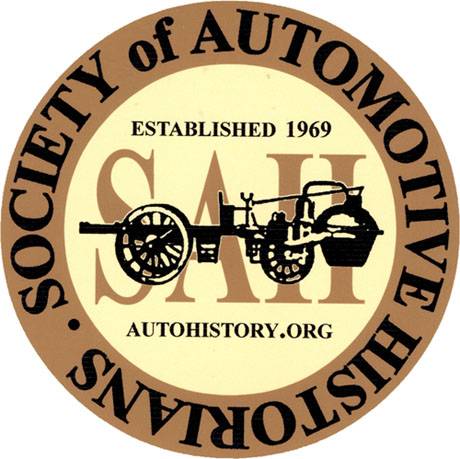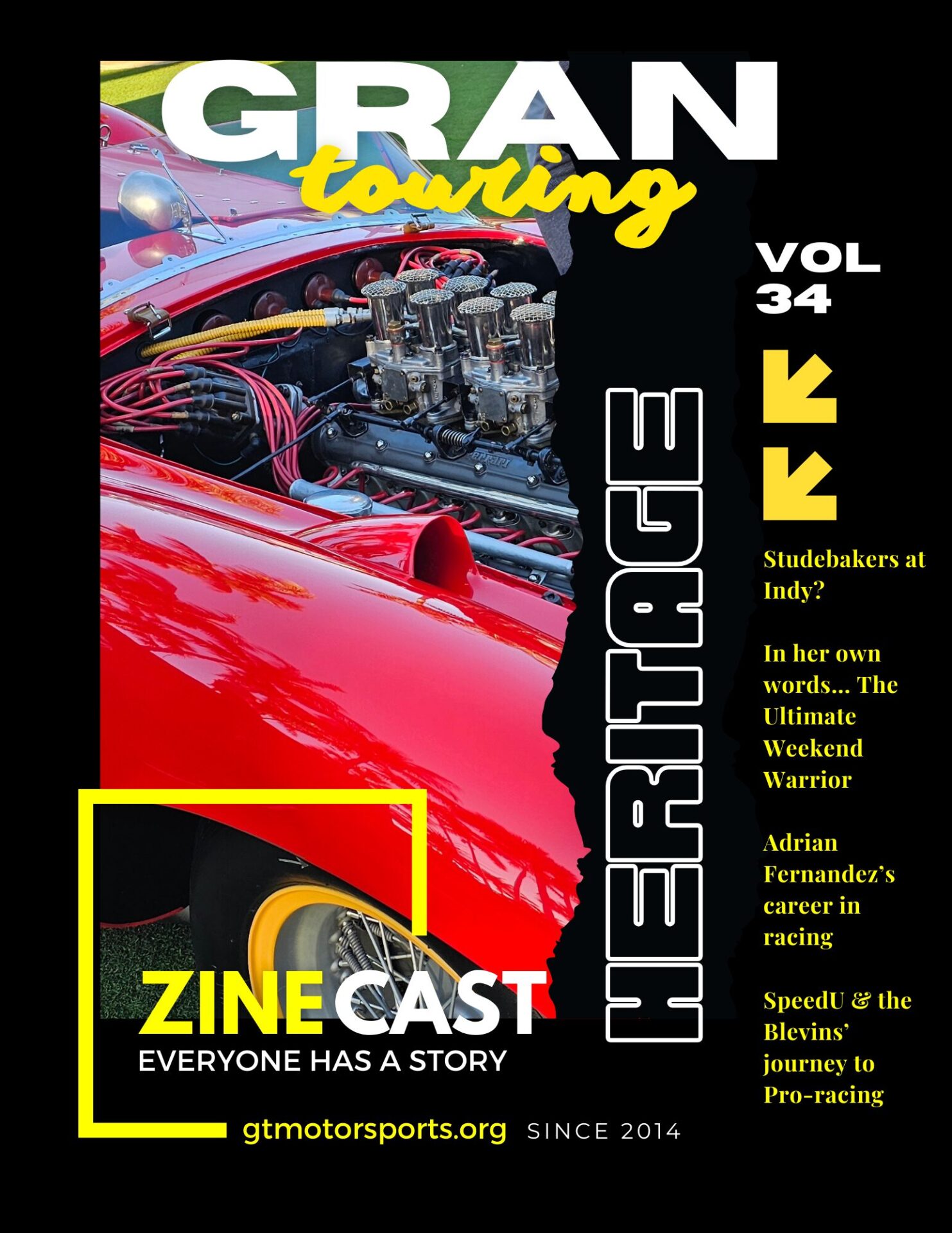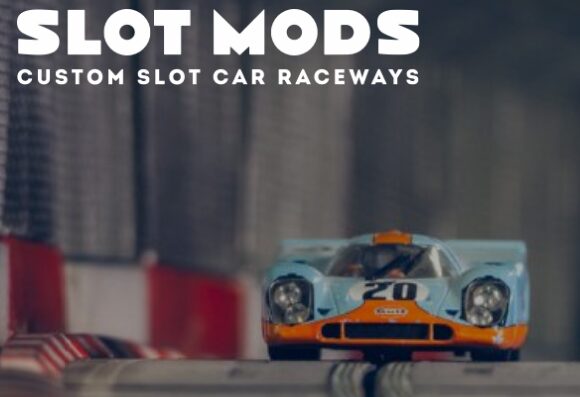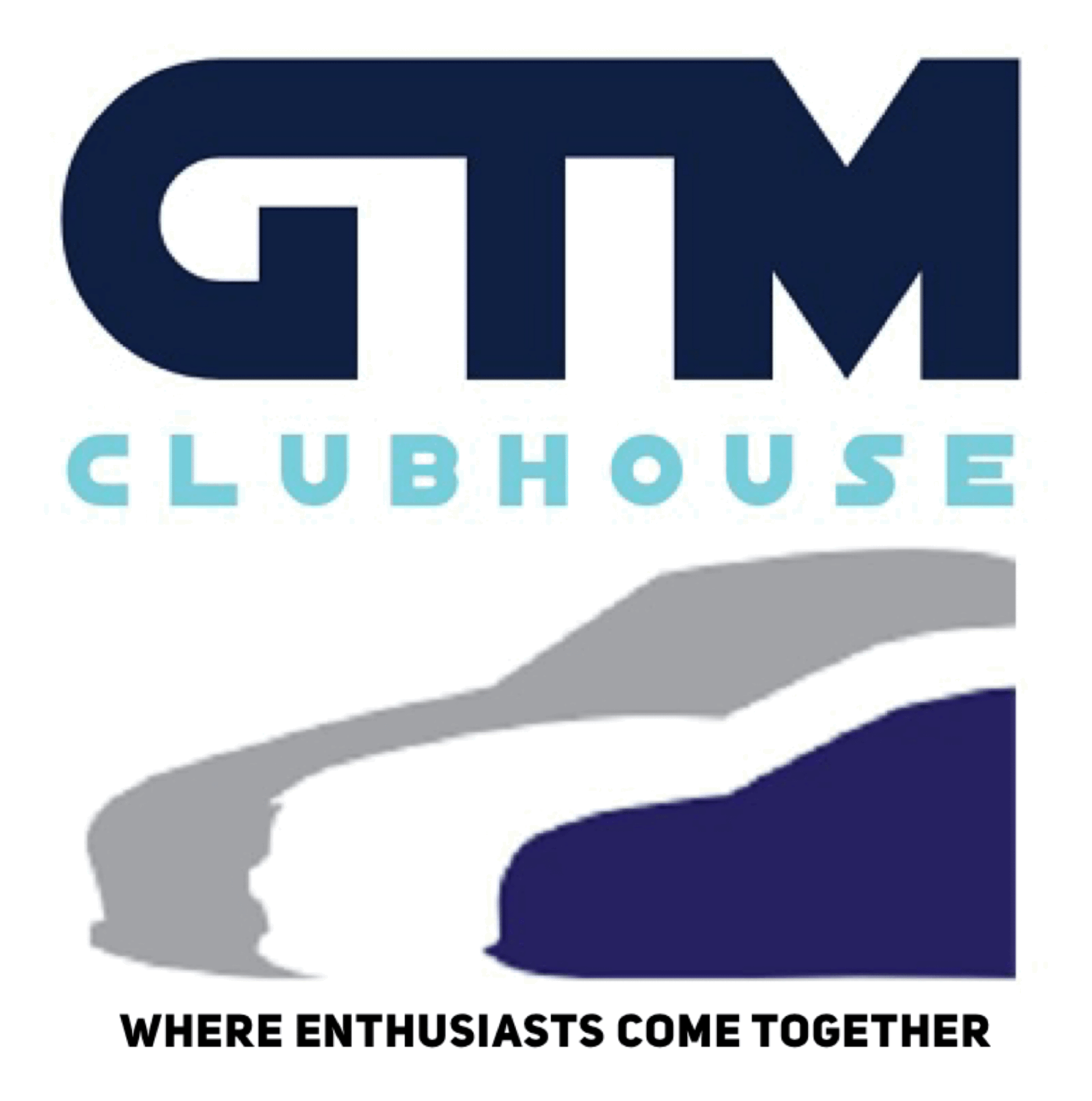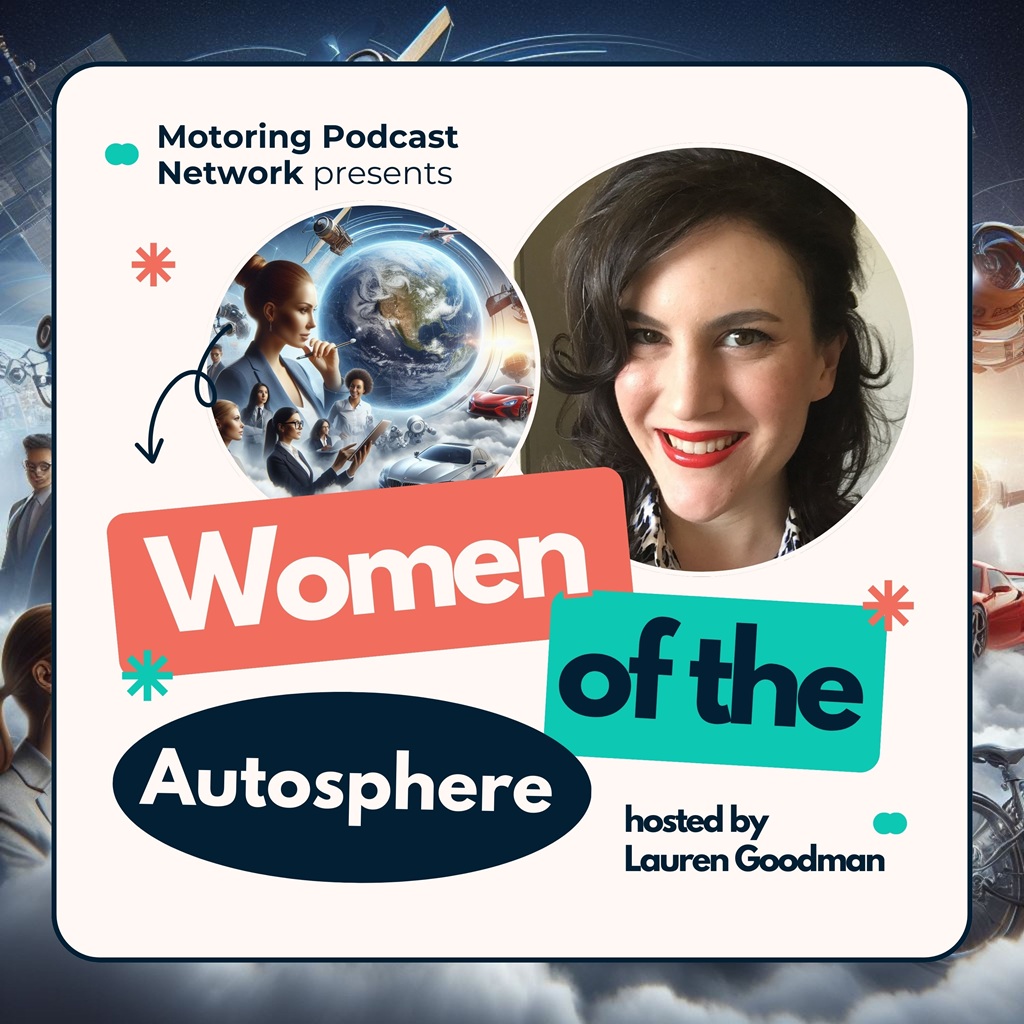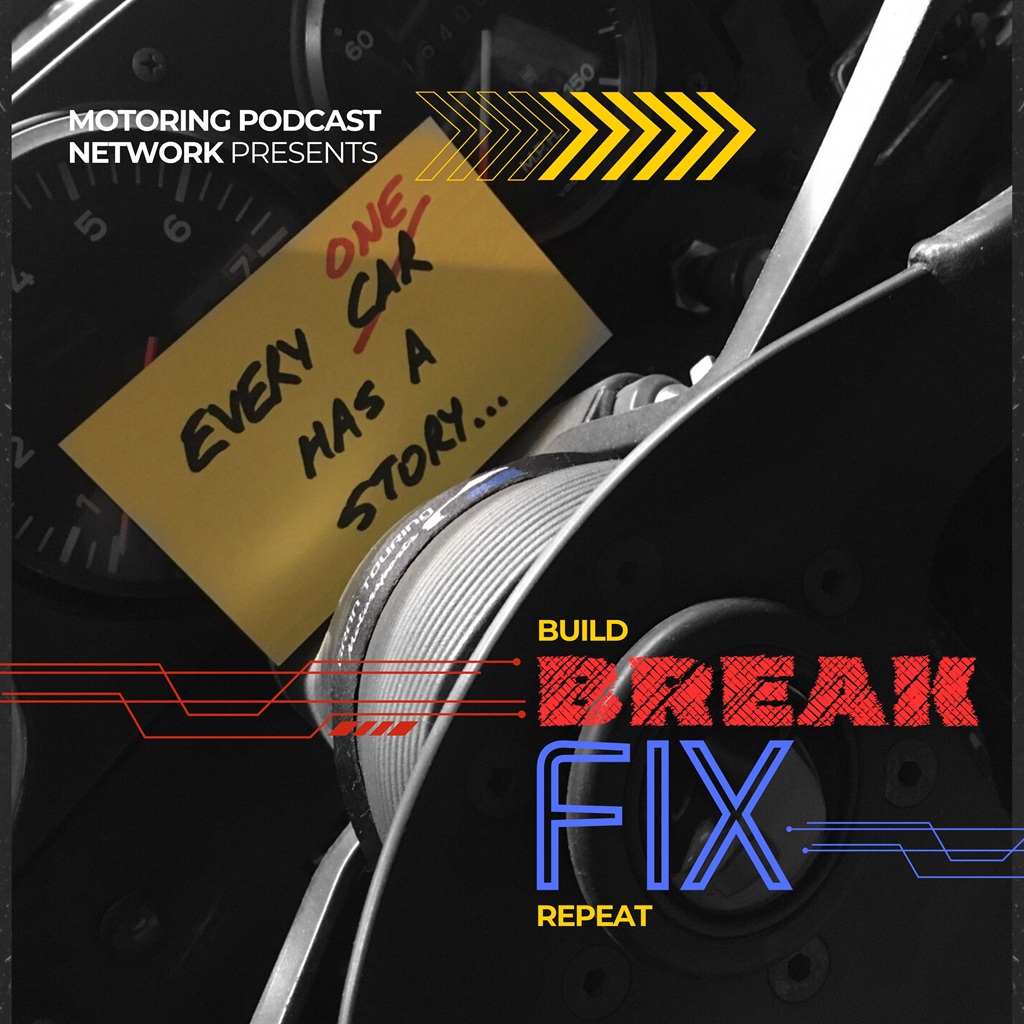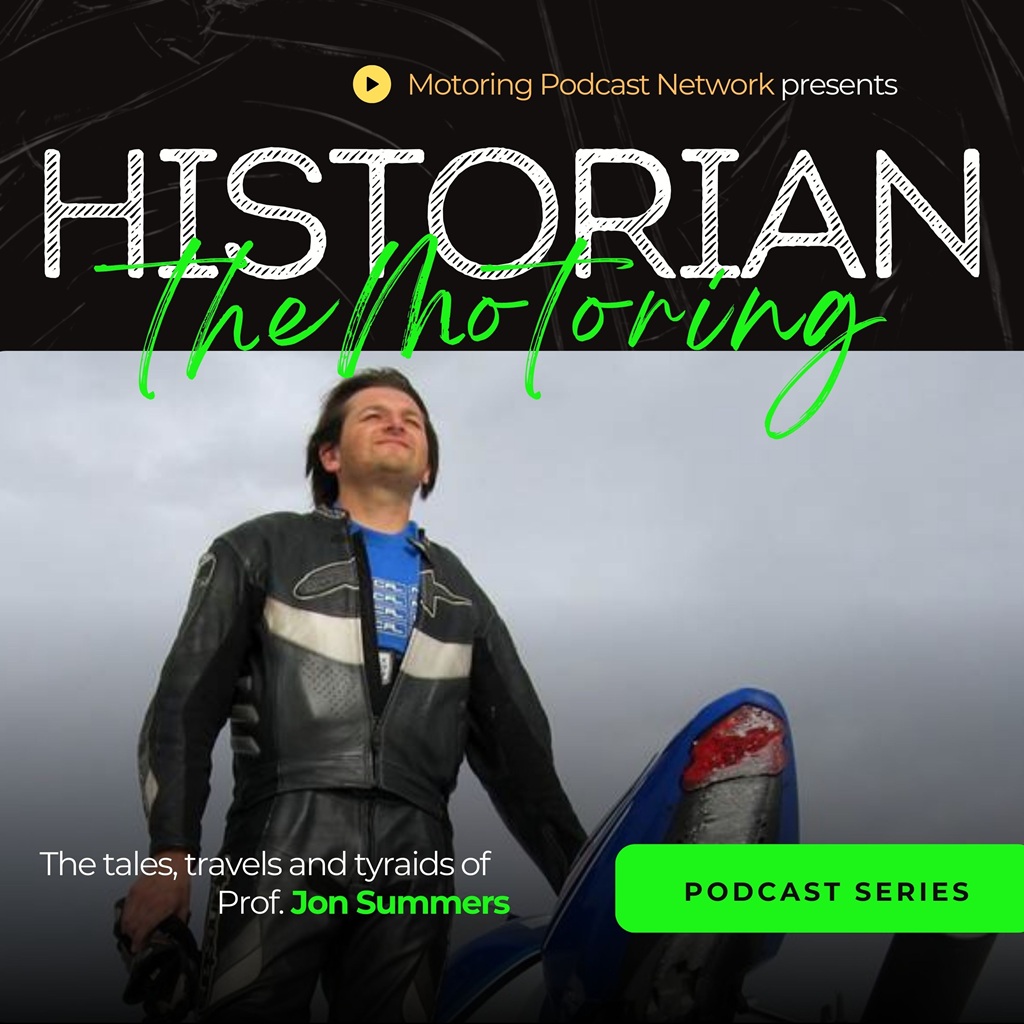Alana Roberts and her husband received a collection from a Canadian race driver’s estate. David Crowther, the driver, competed from the 1960s through the late 1980s in various events, including autocross, rallying, and ice racing, participating almost every weekend from January to October. The collection comprises extensive race results, news clippings, programs, and even race banquet menus, offering a remarkable glimpse into the life of an everyman driver.
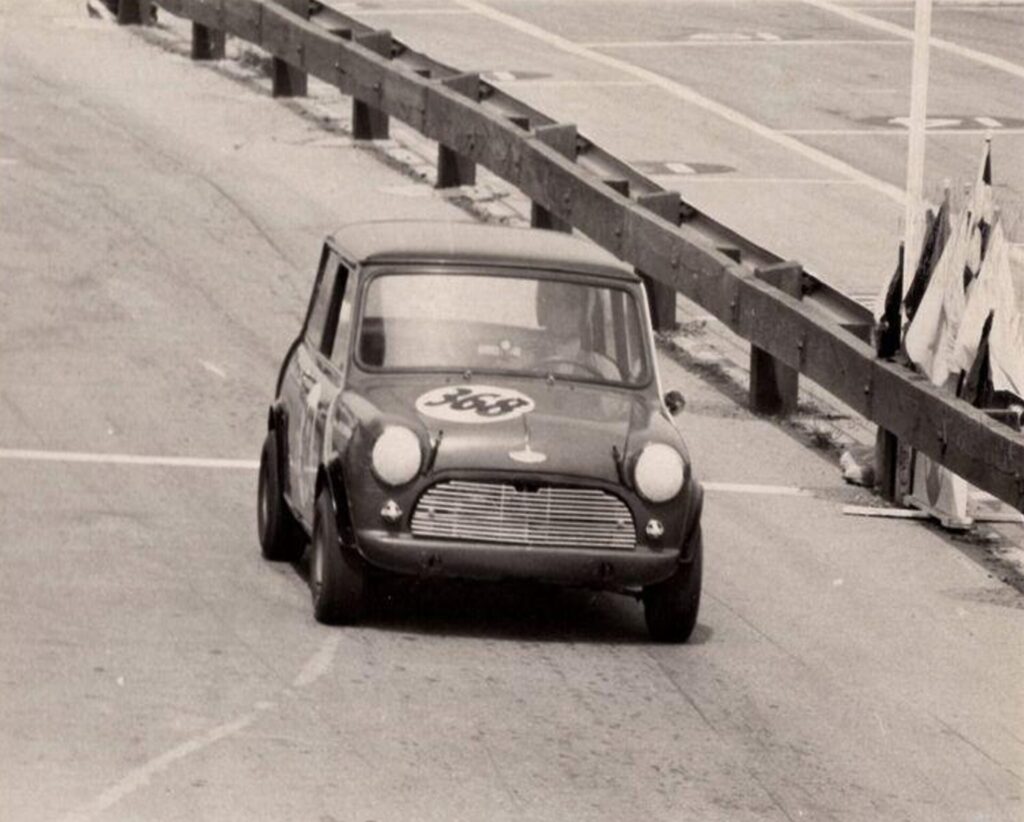
Alana’s presentation discusses how the International Motor Racing Research Center (IMRRC) supports both researchers and race enthusiasts while preserving the legacies of drivers like Crowther. Visual accompaniments will include Crowther’s race helmet, photographs of him in action, and his rallying clipboard.
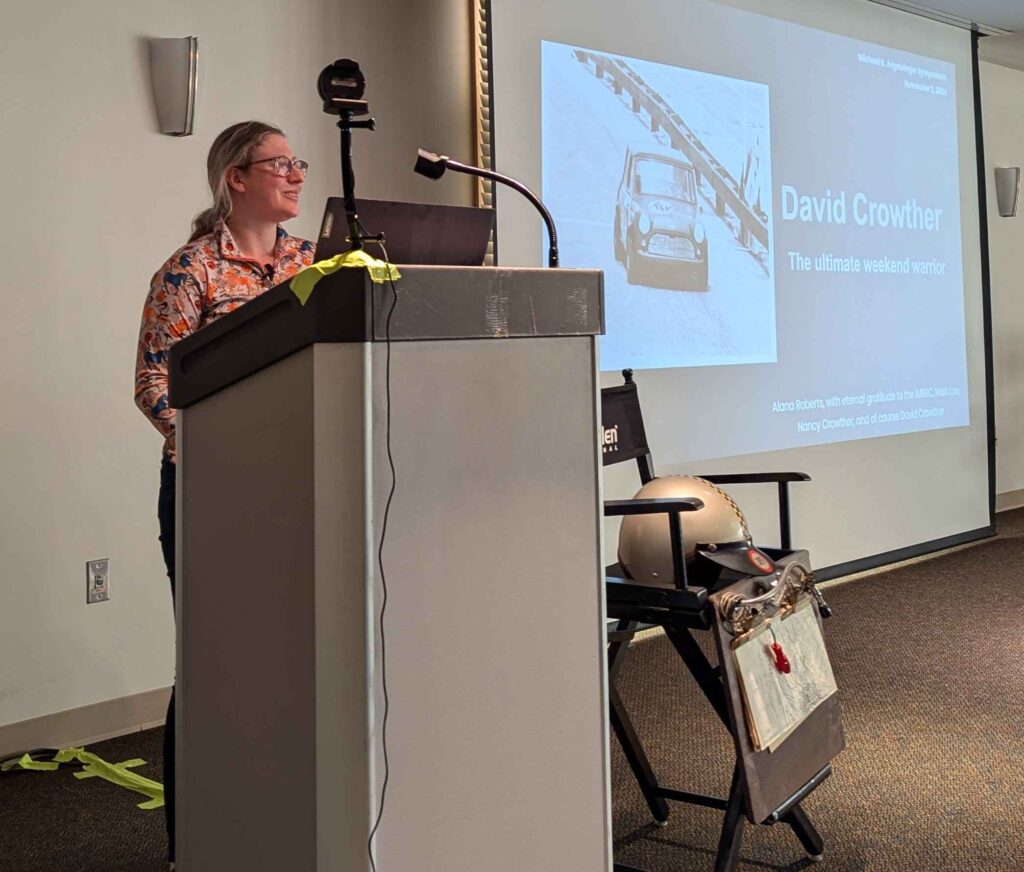
Through these artifacts, Roberts will highlight the IMRRC’s role in keeping motorsports history alive and accessible. This presentation will not only celebrate Crowther’s extensive racing career but also emphasize the importance of archival research centers in maintaining motorsport and driver heritage.
Tune in everywhere you stream, download or listen!
 |  |  |
- Bio: Alana Roberts
- Notes
- Transcript (Part-1)
- Transcript (Part-2)
- Highlights
- Livestream
- Learn More
Bio: Alana Roberts
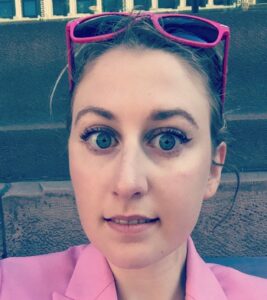
Alana Roberts is a graduate of Mount Holyoke College and the University at Buffalo School of Law. She is a novice autocross competitor and racing history enthusiast with a passion for classic British cars along with her husband, Trevor. Among their collection are a first year production 1959 Austin Mini and a 1958 Austin Healey Bugeye Sprite. Beyond her automotive interests, Alana enjoys spending time with her corgi, Alexander Hamilton, and her pony mare, Dixie, with whom she practices dressage.
Through their connections to the classic mini world, Alana and Trevor became custodians of David Crowther’s collection of race results, programs, and various other racing ephemera. While cataloging the collection to donate it to the IMRRC, Alana’s passion for racing history merged with her love of academia and it is an honor to present the collection and her experience cataloging it.
Notes
Transcript (Part-1)
Crew Chief Brad: [00:00:00] Breakfix’s History of Motorsports series is brought to you in part by the International Motor Racing Research Center, as well as the Society of Automotive Historians, the Watkins Glen Area Chamber of Commerce, and the Argettsinger family.
Crew Chief Eric: David Crowther, The Ultimate Weekend Warrior, by Alana Roberts. Alana Roberts and her husband received a collection from a Canadian race driver’s estate. David Crowther, the driver, competed from the 1960s to the late 1980s in various events, including autocross, rallying, and ice racing, participating almost every weekend from January to October.
The collection comprises extensive race results, news clippings, programs, and even race banquet menus, offering a remarkable glimpse into the life of an everyman driver. Alana’s presentation discusses how the International Motor Racing Research Center supports both researchers and race enthusiasts while preserving the legacies of drivers, like David Crowther.
This presentation will not only celebrate David’s extensive racing career, but also emphasize the [00:01:00] importance of archival research centers in maintaining motorsport and driver heritage. Alana Roberts is a graduate of Mount Holyoke College and the University of Buffalo School of Law. She is a novice autocross competitor and racing history enthusiast with a passion for classic British cars along with her husband Trevor.
Among their collection are a first year production 1959 Austin Mini and a 1958 Austin Healey Bug Eye Sprite. Through their connections to the classic mini world, Alana and Trevor became custodians of David Crowther’s collection of race results, programs, and various other racing ephemera. While cataloging the collection to donate to the IMRRC, Alana’s passion for racing history merged with her love of academia, and it is an honor to present the collection and her experience cataloging it.
Kip Zeiter: Alana Roberts, she’s going to tell us about David Crowther, the Ultimate Weekend Warrior.
Alana Roberts: Thank you so much for having me. Obviously I’ll introduce Dave in a little bit. Just briefly, you may have read in my abstract that I was going to bring props, and I did. [00:02:00] Right here we see David Crother’s helmet from 1961 and his rallying clipboard.
It’s just, it’s cool. As you’ll see, this collection is comprised of so many papers, so many photographs, newspaper clippings. But it’s kind of cool to see the stuff that was touched by Dave, right, that was held in his hands. So three years ago today, or rather in September of 2021, I experienced my first vintage festival here at the Glen.
I can still recall how completely enthralled I was with all of it. Gorgeous cars, the way they smelled, and the way they sounded. It was also the very first weekend that I got to set foot in the IMRC. As a book lover, I wish I could say that it was the books that first caught my attention, but it was not.
It was the energy, the passion that goes beyond cars, racing, even books. It was the people there. I was and I [00:03:00] am hooked. We are so lucky that a place like the IMRC exists and helps, along with the Society of Automobile Historians, host amazing events like the one we are at today. Last year I attended as a mere guest, an auditor, and I left with the thought that maybe, hey, I could do that too.
I am not a professional historian. Just someone with a love and an appreciation for motorsport. But maybe that is why I think it is so cool today that I get to share a collection of a driver. Not a professional, but a true everyman grassroots driver, who I hope you leave today, now having gotten to hear a little bit of his story.
David Crother, the ultimate weekend warrior. In my presentation, I largely introduce David and the context of his cars, his races, the tracks he spent time on, and the clubs whose membership’s own [00:04:00] stories are preserved within the collection. I then describe why this collection, not of a driver like Sterling Moss or A.
J. Foyt, has a meaningful place in the IMRC and how I hope it can inspire others. to be donated and catalogued. My husband Trevor met David through our classic mini friend, Mark Law. And after David passed away, Trevor and I were entrusted with boxes of his racing life. Numerous programs, countless results, club newsletters, and other ephemera.
Some of it we are still going through. So please know that this collection, as I understand it, is only going to continue to grow. To many, it is just papers, cool papers, but papers that may have been bound for the trash if it weren’t for Mark recognizing that Trevor and I Racing nerds would probably like to see it.
[00:05:00] Thankfully, that was not the case, and it did in fact make its way over the Canadian border to us. I cannot tell you how cool it was the first evening we really dug in. There was so much. We quickly realized that this incredible collection belonged somewhere it could be appreciated by many. So we decided to donate it to the IMRC.
This collection, at least to me, serves as David’s life. his racing career, and hold significance. And I hope to honor his legacy and encourage others to spend time telling grassroots motorsports stories. We can’t have a racing driver without a race car, of course. And Misty, seen here with David behind the wheel, and also Trevor behind the boot, is a pretty incredible car.
A 1964 Austin Cooper S. With the rare 1071 engine, 549 exported that year, Misty [00:06:00] would have been a pretty competitive car for her day. And as you’ll see, competitive it was. Misty still exists today, in the trusted care of Mark, on behalf of David, and his wife Nancy, whose role I will talk about in a little bit, or allow her to talk, as you’ll see.
David was not a professional driver, but he approached motorsports with passion and dedication. Here, we see him taking the flag in a meet at Harewood as a novice. From autocross to ice racing, Dave raced in a variety of disciplines from January to October, spanning three decades. David’s career began in the 1960s with events like driving skill tests, slaloms, and winter rallies.
This decade showcases his early involvement and skills building. Grassroots motorsports events focusing on precision driving, rally [00:07:00] navigation, and time challenges reflect the popular style of motorsport at the time in Canada. Events that would not break the bank. and could be done with an average entry level sports car of the time, such as Minis, Triumphs, MGs, and Datsuns.
The 1970s show a transition into more competitive slalom and solo events, as well as continued participation in rallies. Slalom racing involved navigating a course of cones, while solo events were timed runs on closed circuits, kind of a precursor to autocross as we now know it. This period also marks the most prolific period of racing for David, with the greatest number of entries.
In the 1980s, David took his racing to a new area, focusing heavily on ice racing, which became one of his specialties, and where I can attest to his competitiveness, as we have a box of his trophies at home. I am still [00:08:00] trying to collect more information from this period of his racing life, but when doing a beginning dive into him on social media, I This was the period where drivers still around remember Dave from.
It’s a sad reality that we are losing drivers like Dave every day, but their collections allow their memories to live on. One of the highlights of diving into David’s collection was his proclivity for keeping everything, or what felt like everything. Here we see his provisional racing license from a driver’s school he attended in 1968, along with a write up of the event and a list of fellow drivers.
It not only gives us a perspective on grassroots racing education, but also the variety of cars and drivers that took part. Over the past year, I have spent time at the IMRC as one of the selling points I made to Duke and Mark when donating this collection was that I would also be the one to [00:09:00] catalog it.
It was difficult picking through four or five archive boxes of materials to pick the things that I think Dave would want seen. I felt that it was important to highlight the materials that show not only his prowess and passion, but also the community that he was a part of, of the grassroots racing scene in Canada in the 60s through the 80s.
Dave possessed a skill I envy even beyond his ability to throw a Cooper S around. He was meticulous. The next few slides are scans from his photo albums, generously loaned to me for this presentation by Nancy Crother. In these albums, beside each image, Dave also cataloged his results from that particular race.
And again, we can see the variety of cars that took part. Dave was very proud of his results and his racing career. Throughout his collection are not only meticulous notes about his results and points for the season, but [00:10:00] also news clippings featuring him and his fellow drivers. One great clipping that unfortunately did not make this presentation is a clipping about a local solo event.
causing a stir in the community due to the noise generated, and a letter circulated to the competitors apologizing for having to cut the event short. These were not events at Gilded Tracks. This was true down and dirty hobbyist racing. And there he is taking the checkered flag. His wife Nancy initially gave him a year to get it out of his system, but soon Nancy herself was equally captivated by the racing world.
Turning what was meant to be a brief phase into a lifetime of mutual enthusiasm and competition. Mark had told us stories about Dave, and I knew his wife Nancy is still alive. But up until recently, I had not had the honor of meeting her. During a trip this year to Canada for Bronte British Car Day, Mark and Trevor [00:11:00] surprised me with the opportunity to sit down and talk with Nancy.
I was only mildly annoyed that I hadn’t had a chance to prepare questions, but it didn’t matter. Nancy knew Dave, and Nancy was there for his passion in more ways than one. Instead of trying to sum up Nancy’s role, I’d instead like to play a clip from my time spent with her.
Nancy Crowther: He had a best friend named Colin, who had an MG.
And Colin had a, um, a very terrific father. Colin’s father was born in England. And he was just a factory worker, like Colin’s father. Dave’s father was like a manager. He was higher up. Now it was Colin’s father, not Dave’s father, but he said to the boys, Colin and Dave, I’m going to give you boys 500 each for entry fees to go racing, okay?
And in those days that was, that was, you know, that was, you know, [00:12:00] okay. So, uh, both of them, they went as a team. Both were red, like, Davis, Misty, and then the MG. And they, they, um, raised, and the year before we got married, he did it. Uh, we were engaged, but, but I said, You gotta get that out of your system.
Because once we’re married, You know, like, other things, right? But I could tell, right from the beginning, like, motorsport was his love. So, he decided that’s what he wanted. A year of racing. And he thought he’d sort of get it out of the system. But it ended up, immediately went into a driving skill slalom.
And we did that for a long, long time. And did the whole Ontario circuit. And it meant traveling along. We started out very basic. David would change the tires at the event. He put the, uh, racing tires in the back [00:13:00] seat.
Alana Roberts: You knew that now, wasn’t it?
Nancy Crowther: We didn’t have a trailer. That’s how we started. I used to always, always go with him.
Uh, he’s more or less a crew. You know, like I keep track of all of his scoring. I love doing it. I enjoy being there. That explains why all the scoring is so neatly written. Well, I don’t necessarily agree with that because he was very neat too. But, and he, you know, wasn’t he? Very, very organized. And very meticulous as well, so it was probably him, not me.
Paul Baxa: I’ve seen both your handwritings, they’re both pretty good. Yeah,
Nancy Crowther: yeah, they are. But, uh, Now, so when he was road racing, I was always involved. Like, I enjoyed timing and lap scoring. We belonged to a car club, and I got a reputation for the timing and the lap scoring, so when the car club was doing events, I always got stuck in the timing and the timing end of things.
I like right from the beginning. I enjoyed, you know, I enjoy cars, I enjoy racing and I was happy doing what I was doing. I, [00:14:00] in those days, it was very, very few girls that actually competed.
Alana Roberts: Funny because when I met my husband, he was also Autocrossing and I sort of started as crew and then wound up bracing myself and actually wound up working in timing for a bit.
So it’s funny, the parallels you find in a collection like this, the sort of self insert you find. And I really, the entire interview was not an interview, it was just Nancy telling stories about Dave for two hours. And certainly we’re going to find a way to incorporate this two hour interview into the collection itself as it exists.
So I’ve briefly described the extent of this collection, but I’d like to highlight the true breadth of it. Single spaced, size 12 font, the catalog extends four pages of programs, race results, entry lists, rules and regulations, newsletters, and numerous other pieces of ephemera, including correspondence.
Race [00:15:00] results span three decades, documenting not just Dave’s finishes, lap times, positions and points, but countless other drivers. Potentially someone’s father, someone’s grandfather, or even someone’s grandmother, as women were not immune to the lure of racing in Canada at this time period. Throughout these results, we can also track the evolution of drivers themselves, with women drivers becoming more common into the 70s and 80s, and the types of cars ever changing.
The collection also includes local club newsletters, capturing the efforts taken on by a community of like minded men and women. As an autocross competitor myself, It should not have surprised me the excitement and sometimes the drama these newsletters captured as well as the sheer number of people they revealed that had to be involved in order to put these events on.
Autocross remains a popular motorsport today and [00:16:00] having a collection of rules and regulations from the 1960s onward helps track the development and the evolution of the sport from then to now. I was overwhelmed at the project initially, and probably definitely didn’t take it on more than I anticipated.
But it was truly a worthwhile endeavor. One thing that struck me is kind of odd, but I think helps demonstrate David’s collection, how unique it is. Are the things kept, or maybe you or I might have tossed them. Banquet tickets to year end award dinners, and not just that, but the food menus. Dave kept it all.
Events such as the 1962 and 1963 Canadian Winter Rally were extremely well documented, including the entry packet, acceptance letter, correspondence, and results. Again, the novice meet at Harewood was equally well documented. A date at Harewood was a chance for amateur drivers to experience a notable track, and [00:17:00] events held at Harewood are throughout David’s collection.
The Midas Muffler Slalom was one of the slalom events in which David participated, offering a platform to better his driving skills. These events, popular in the 60s and 70s, required drivers to navigate a cone course with precision and speed, testing their car control and agility. The event packets included in the collection often have the course diagrams as well, offering insight into early and evolving course design.
Hosted by the British Automobile Racing Club of Toronto. The driving skill test was a vital part of early motorsport development in Canada. Events like these were instrumental for grassroots racers, providing a controlled environment to enhance driving skills. and earned recognition in the community.
Ice racing, particularly through the British Empire Motorsports ice sprints, became a significant aspect of [00:18:00] Dave’s racing portfolio in the 1980s. Ice sprints involved navigating a course on a frozen surface, which required advanced handling skills and quick reflexes. Nimble British cars, like Dave’s Ice Racing Mini, a 1962 Cooper named Minerva, We’re adept at ice racing and the standout tracks.
Mossport, now known as Canadian Tire Motorsport Park, is a renowned motorsport venue located in Ontario. Approximately 75 kilometers east of Toronto. The circuit was the second purpose built road race course in Canada, and was designed and built in the late 1950s. We mentioned Harewood. Harewood Acres was a popular motorsport venue, also in Ontario.
Originally an airfield during World War II. It was later converted into a racetrack and became a central hub for racing events in Ontario from the 1950s [00:19:00] through the 1970s. Green Acres was a motorsport circuit located near Port Albert in Ontario, and it was active from 58 to 62. The track hosted various sport car events, attracting numerous enthusiasts and competitors during its operational years.
Unfortunately, it ceased operations in 1962, unable to survive for a longer period of time. In Waterford Hills, to my knowledge, Dave’s only foray into racing in the states near Detroit. Established in 1958 on the grounds of the Oakland County Sportsman’s Club, it stands as one of the oldest racetracks in the United States.
and the sole road racing course in Southeast Michigan. Dave was invited to compete in an event hosted by a local Corvette club, hoping to expand their horizon. He came along with nine other Mini drivers for an event held in May of [00:20:00] 1964. I don’t yet have the results for this particular event, but as I was told, the mighty Minis held their own against the larger and more outright powerful Corvettes.
And in true hometown legend fashion, sometimes the story, I think, is more important than the facts. Before World War II, there was little in the way of organized auto racing in Ontario. There were stock car races and some dirt track racing as well as motorcycle races. Organizations like CASC, The Canadian Automobile Sport Club changed that in the 1950s.
In 1967, CAS was recognized by the FIA as the governing body of motorsport in Canada. This affiliation allowed CAS to sanction major events, including the Canadian Grand Prix, and to collaborate with other sanctioning bodies, such as the SCCA in America. Today, C. A. [00:21:00] S. C. is an association of over 30 member clubs within Ontario, sanctioning events, licensing competitors, setting safety standards, and handling administrative matters.
The British Automobile Racing Club, Ontario, B. A. R. C., established in 1959 by motorsport enthusiasts in the Toronto area, is a volunteer driven organization still around today, dedicated to organizing, and participating in motorsport activities across Ontario. The London Automobile Sport Club, LASC, based in London, Ontario, is a sports car racing club affiliated with CASC.
Established in 1958, LASC remains a hub for motorsport enthusiasts in the region, organizing and participating in various racing events. And finally, we have the British Empire Motor Club, BEMC, established in 1928 in Toronto. It’s one of Canada’s [00:22:00] oldest and most influential motorsport organizations.
Initially focusing on promoting British motorcycles, the club expanded its scope over the decades to include various forms of motorsport. In 1939, BEMC began accepting car enthusiasts. As full members, and the club’s first combined motorcycle and car event took place in 1950 at an old airport. And this event marked the beginning of their involvement in auto racing.
Now, I would be remiss if I did not mention that Dave, in fact, made several pilgrimages to the Glen like many racing fans. These racing pictures come from his photo albums and show drivers, thanks to Bill Green for identifying these, such as Jack Ratham and Sterling Moss and local meccas like Smalley’s Garage.
I was initially unaware of David’s travels to the Glen until I was generously loaned some of his photo albums. And it was a really cool full circle moment to know that he had [00:23:00] journeyed to our backyard to take in the sights and the sounds of the Watkins Glen Grand Prix. David’s collection is far more than a mere assortment of old programs, race results, and trophies.
It’s a rich time capsule that offers us a rare glimpse into the history of grassroots motorsports in Canada. It tells a compelling story of dedication, passion, and the spirit of individuals like David Crother, who are not professional racers with sponsorships. But ordinary people driven by an extraordinary love for competition and community.
Through this lens, we see how they transformed their weekends into competitive pursuits, turning airstrips and frozen lakes into racetracks, and challenging each other not for fame or fortune, but for the sheer thrill of the sport. David Crother was a [00:24:00] quintessential embodiment of this grassroots motorsport spirit.
His journey through three decades of racing, from driving skill tests and rallies to slaloms and ice races, paints a picture of a man who thrived on the camaraderie, challenges, and rare excitement that came with motorsport. This was a time when racing was more about innovation and resourcefulness than about technology and big budgets.
By preserving David’s legacy through this collection, we do more than honor a single racer. We safeguard an entire chapter of motorsport history that might otherwise fade into obscurity. It is a testament to the everyday enthusiasts who built the Racing Foundation in Canada. Grassroots events required a team of volunteers, as seen by the list of volunteers in the center, [00:25:00] often comprised of mostly the drivers themselves, along with a few good hearted spouses and friends.
And as seen here by one of Dave’s many notes on his racing expenditures and budgets, this was not a hobby of unlimited resources. While piecing together this presentation, I’ve come to realize that we’re only scratching the surface. There’s more to uncover, more stories to tell, and more details to explore.
Collections like these may initially come from one driver, but as you can see here, there are countless drivers who are just waiting to be unearthed from someone’s boxes of memories and join the IMRC’s archives. I can’t tell you where we go from here, but I hope this collection reminds us all that from humble beginnings, stories worth telling can grow.
And as you can see, this is what I mean. We’ve got lists of entries. They [00:26:00] actually have biographies of some of the drivers themselves, and this just makes up One hundredth of this man’s collection. Thank you to the IMRC, to Duke, Bill, Mark, Dwayne, Kip, Kors, Nancy and David Crother, Mark Law, Trevor, and all the other drivers whose stories are yet to be told.
Thank you.
Kip Zeiter: Thanks Alana, that was fascinating and as you point out, this is one story of one man. Goodness knows how many more are out there. We at the IMRC are always ready, willing and quite happy to receive material like this and preserve the legacy of those people. Does anyone have any questions for Alana?
Ken Yohn: The motocross is a, a venue I’ve heard a lot about.
I’ve seen false bannerings. You’re involved in it. How many, would you have a guess, how many people are involved in the event? [00:27:00] In
Alana Roberts: an autocross? Do you mean nationally?
Ken Yohn: Like, when we talk about as, as, in the state of New York, or in, or county, or Does anybody have any idea?
Alana Roberts: Yeah. I would say, at every competition, there’s probably, what do you want to say, 60, 60 drivers.
Trevor Roberts: Uh, I can tag in on that. We generally in the Finger Lakes region have anywhere from a really slow weekend of about 85 drivers, upwards of, when we do the national tour here, several hundred.
Ken Yohn: We have this line in Kansas, I mean, it’s a, it’s a pervasive motor
Alana Roberts: sport. It’s a great way to get involved from every level, you know, drive what you brought, automatic.
I personally stalled every single start my first event, and I kept coming back with a smile on my face It’s not just because of the event itself, but the people involved.
Trevor Roberts: To kind of shift to Alana’s last slide here, too, that one picture on the left side of the screen is a very, very special picture for the fact that that was David’s garage.
He spent hours out there just sitting there, [00:28:00] reading, drinking, doing whatever, enjoying his cars, even when he wasn’t able to drive them anymore. One of those blessing moments, he passed away in the chair in the back of that photo, in that very garage.
Alana Roberts: Looking at his cars. With a beer in his hand. Yup.
Trevor Roberts: With a nurse by his side.
Alana Roberts: Yup.
Trevor Roberts: And that was his last warm fuzzy memory about auto racing.
Alana Roberts: This is, this is truly a collection that has come to, to not only, I think, embody Dave, but so many other stories. I was worried I was going to get teary eyed on the last slide. And thanks Trevor, you kind of did it. But no, this is, this is a really cool collection.
And just thank you so much for letting me share it with you all.
Kip Zeiter: How did you become interested in this one particular gentleman?
Alana Roberts: So my husband and I, Trevor, met because of our Mini Coopers, and so we have a large group of friends, right? Mini drivers tend to find other Mini drivers. It’s a small community.
And our friend, Mark Law, was good friends with Dave, in fact, kind of like a son. They, Dave never had kids. And so when, when Dave passed [00:29:00] away, Mark is not at all a paper guy and was kind of threatening to throw this collection to the trash. And we put our foot down and said, absolutely not. Please let us hoard it.
I don’t know what’s going to happen with it. But pretty much instantly, the first time I started looking through the collection, I knew it belonged at the IMRS, I see.
Kip Zeiter: That’s great. Well, thank you for your interest. Thanks for preserving it.
Crew Chief Eric: It’s terrific. Terry Johnson writes, a question for Alana, but also for the historians at the IMRC.
Do you have any suggestions for the preservation of old documents, programs, photos, etc., archival materials used?
Alana Roberts: Yes, if it’s at all possible, I might punt this to Joe as our, as our new archivist here at the IMRC. Welcome, Joe, because I think that would be really important, right? People want to know how they can preserve their, their dad’s, their, their grandfather’s collections.
Joe Schill: Thank you, Alana. First of all, I would say, If you’re interested in donating things, please reach out to us and let us know what you have. You can contact us. Our information is online. That would be the best. Course of action, I would suggest because when you [00:30:00] donate it to an organization like ours, it becomes public and we can make it accessible to other researchers.
If you’re just interested in caring for things at your house, I mean, try to keep them out of the basement, out of the attic, out of the garage. Keep them in your house so that the temperature is not erratic and not super humid and not super dry. Archival materials are expensive. If you really want to preserve things, you can look around for acid free archival quality materials.
They’re available online through a number of vendors.
Alana Roberts: Thanks Joe. And I will say just briefly, it’s really cool, again, from coming here last year as a, as a spectator and, and getting to be involved, I’m just very grateful. Yes, Paul? Um,
Paul Baxa: not just a question, but just a note of gratitude to you and your husband for accepting that material.
And then for cataloging it and then donating it. Uh, as an historian, the work that people like you guys do is absolutely essential, because otherwise it gets thrown out. And plus, I’m, I’m a Canadian, and this is really Oh, so great! This really hits home. So thank you very much for a [00:31:00] wonderful.
Alana Roberts: We’re lucky to live so close.
Thank you very much.
Kip Zeiter: Okay, thank you again. Wonderful.
IMRRC/SAH Promo: This episode is brought to you in part by the International Motor Racing Research Center. Its charter is to collect, share and preserve the history of motorsports, spanning continents, eras and race series. The Center’s collection embodies the speed, drama, and camaraderie of amateur and professional motor racing throughout the world.
The Center welcomes serious researchers and casual fans alike to share stories of race drivers, race series, and race cars captured on their shelves and walls. And brought to life through a regular calendar of public lectures and special events. To learn more about the Center, visit www. racingarchives.
org. This episode is also brought to you by the Society [00:32:00] of Automotive Historians. They encourage research into any aspect of automotive history. The SAH actively supports the compilation and preservation of papers, organizational records, print ephemera and images to safeguard, as well as to broaden and deepen the understanding of motorized wheeled land transportation through the modern age and into the future.
For more information about the SAH, Visit www. autohistory. org.
Crew Chief Eric: We hope you enjoyed another awesome episode of Brake Fix Podcast brought to you by Grand Touring Motorsports. If you’d like to be a guest on the show or get involved, be sure to follow us on all social media platforms at GrandTouringMotorsports. And if you’d like to learn more about the content of this episode, be sure to check out the follow on article at gtmotorsports.
org. [00:33:00] We remain a commercial free and no annual fees organization through our sponsors, but also through the generous support of our fans, families, and friends through Patreon. For as little as 2. 50 a month, you can get access to more behind the scenes action, additional Pit Stop minisodes, and other VIP goodies, as well as keeping our team of creators Fed on their strict diet of Fig Newtons, Gumby Bears, and Monster.
So consider signing up for Patreon today at www. patreon. com forward slash GT Motorsports. And remember, without you, none of this would be possible.
Transcript (Part-2)
Crew Chief Brad: [00:00:00] Grand Touring Motorsports started as a social group of car enthusiasts, but we’ve expanded into all sorts of motorsports disciplines, and we want to share our stories with you. Years of racing, wrenching, and motorsports experience brings together a top notch collection of knowledge and information through our podcast, Brake Fix.
Crew Chief Eric: In this special Pit Stop Minisode, Alana Roberts chats with Nancy Crowther, widow of the late David Crowther, featured in Alana’s Argensinger Symposium presentation, The Ultimate Weekend Warrior. They chat about his extensive racing history and their life together in Canada. Dave was a passionate motorsport enthusiast.
He raced various Mini Coopers in different disciplines of motorsport, including road racing, autocross, and ice racing. The interview weaves through anecdotes about Nancy and Dave’s journey, starting from their meeting, dating, and into their 59 years together. It highlights significant events like Dave’s victories, their shared experiences, from simple beginnings of their racing with no trailers, [00:01:00] camping at events, and the camaraderie within the racing community.
Dave’s story also touches on cherished memorabilia that he kept, like news clippings and trophies, which was all part of his meticulous nature. Alana’s goal in this is to preserve his legacy, underscoring his modesty and his passion for racing. And this episode serves as a wonderful reminder of the constant evolution of motorsport at every level, and the preservation of these memories for future generations.
Alana Roberts: His wife Nancy initially gave him a year to get it out of his system, but soon Nancy herself was equally captivated by the racing world. Turning what was meant to be a brief phase into a lifetime of mutual enthusiasm and competition. Mark had told us stories about Dave, and I knew his wife Nancy is still alive.
But up until recently, I had not had the honor of meeting her. During a trip this year to Canada for Bronte British Car Day, Mark and Trevor surprised me with the opportunity to sit down and talk with Nancy. I was only [00:02:00] mildly annoyed that I hadn’t had a chance to prepare questions, but it didn’t matter.
Nancy knew Dave, and Nancy was there for his passion in more ways than one. Instead of trying to sum up Nancy’s role, I’d instead like to play a clip from my time spent with her.
Mark Law: So they’re doing like, uh, It’s a symposium. It’s a symposium, so it’s basically she’s going to be talking about Dave and his racing history, and just all about Dave, and Misty, and Minerva and Gumby.
Alana Roberts: Yeah. Not so much about Gumby, but there’s not too much about Gumby. No, no,
Mark Law: not much on Gumby, but Minerva and all of his racing time. Oh, Minerva
Nancy Crowther: and I go to, yeah. Exactly. And I was like,
Mark Law: Nancy will have a million Well, Minerva was
Nancy Crowther: number four, I think, right? I think there was a three. But they were all Minervas.
Mark Law: Of course. Well, there’s no other Minerva. Minerva is Minerva.
Nancy Crowther: Yeah. I name all my cars. Oh, I name mine, and so did Dave, so. Oh, they all have to have a name.
Alana Roberts: Personality. [00:03:00] Even
Nancy Crowther: my master has a name.
Alana Roberts: I have questions that I prepared, that I just kind of figured.
Nancy Crowther: What? I’m supposed to tell you? When we met, Dave and I, uh, like we were married 54 years, and we dated for 5. So 59 years of my life. When we actually, we met at work. He was my boss. Uh, yeah. Um, I was engaged to someone else. Oh my gosh. Instantly with Dave and I, there was like a, a zzz, an attraction, you know, like, cars didn’t enter into it.
It was just like a, an attraction. Then when I got to know him, of course, I heard all about the cars. Now he was driving a Mini. I should have known. You know, and um, all his friends had Minis.
Mark Law: Well, he raced in the, um, no, yeah, the Herald.
Nancy Crowther: Oh, yeah, yeah, before the Mini, he had a Triumph Herald. That was his first car.[00:04:00]
Mark Law: And he raced in the, uh, what was that? San Diego Grand Prix.
Nancy Crowther: I mean, no, no, no, sorry, the, um, Winter Rally.
Mark Law: The Winter Rally, yeah, in 62.
Nancy Crowther: Won Winter Rally. That was before me. Ah, okay. Okay. He had a best friend named Colin, who had an MG. Colin had a, um, A very terrific father. Colin’s father was born in England. He was just a factory worker, like Colin’s father.
Dave’s father was like a manager. He was higher up. Now it was Colin’s father, not Dave’s father, but he said to the boys, Colin and Dave, I’m going to give you boys 500 each for entry fees to go racing. Okay? And in those days that was That was, you know, that was, you know, okay. So, both of them, they went as a team.
Both were red, like Dave’s Misty, and then the MG. And they raced, and the year before we got married, he did it. [00:05:00] Uh, we were engaged, but, but I said, you gotta get that out of your system. Because once we’re married, you know, like, other things, right? But I could tell, like, right from the beginning, like, Motorsport was his thing.
So, he decided that’s what he wanted, a year of racing. And he thought he’d sort of get it out of the system. But it ended up, immediately went into the driving skills slalom. And we did that for a long, long time. And did the whole Ontario circuit. And it meant travelling a lot. We started out very basic.
David would change the tires at the event. He put the, uh, Racing cutters in the backseat.
Alana Roberts: We do that now, isn’t it?
Nancy Crowther: We didn’t have a trailer. That’s how we started. I used to always, always go with him. More or less a crew. You know, like I’d keep track of all his scoring. I loved doing it. I enjoyed being there.
That
Alana Roberts: explains
Nancy Crowther: why all the scoring is [00:06:00] so neatly written. Well, I don’t necessarily agree with that because he was very neat too. And very meticulous as well. It was probably him, not me.
Mark Law: I’ve seen both your handwritings, they’re both pretty good. Yeah.
Nancy Crowther: Yeah, they’re now, so when he was road racing, I was always involved.
Like I, I enjoyed timing and lap scoring. We belonged to a car club and I got a reputation for the timing and the lap scoring. So when the car club was doing events, I always got stuck in the timing, in the timing of things, like right from the beginning. I enjoyed cars, I enjoyed raising, and I was happy doing what I was doing.
I, in those days, it was very. There are a few girls that actually competed, it was more a men’s sport, and I really, really, really did not want to put the strain on the car, like blow out the transmission or something. You know what I mean? So, I was fine doing with what I was doing. With the solo events, eventually it got to the stage where I wasn’t enjoying it.
Being in [00:07:00] a parking lot with no trees,
and no shade, I can’t
Nancy Crowther: take sun, I burn and I peel, I burn and I peel. Even with a hat and long sleeves and everything, you know, because you used to have to work when you went. Yep, you still do. Still do, yeah. Marshalling and checkpoints. Now you don’t have to climb, of course.
Now it’s everything is still up on it, right? But, it got to me. It really got to me. I used to have to take gallons of drinks, like lemonade, water. And, um, of course, then you have to use the washroom. Mm-hmm .
Alana Roberts: Yep. It’s all port potties and a washroom.
Nancy Crowther: Like, just wild, you know? Yep. And like Mo, even most for like, that’s real, really come, it’s been upgraded of what they call now, um, Canadian Tire, motor Sport Park.
It’s no longer called Mosport, but used to go, it was like outhouses or Johnny’s on the spot and they were not. It was like male and female, it was like,
Trevor Roberts: yeah,
Nancy Crowther: so you [00:08:00] go in and you’d end up with wet jeans and pinch your nose and yeah, like, yeah, with, with the girls, like you’d end up all your jeans would be wet.
A couple of times I went at night before we settled down and I got grabbed by the ankles, like, getting my way through these people that were passed out and drunk and they went to pull me like on my ankles and I came back to them and I was shaking. And they said, what’s happened? I said, well, I. So, right, I’ve got a cat going to the bathroom, okay?
Yeah. No problem. No problem. We’ll go back to sleep. So, anyway, yeah. Yeah, when I said I was sort of losing interest in the slalom, we were living in Mississauga in Port Credit, and the event was at Square One, so it was just like a ten minute drive. I said, I’ll come up, if you tell me approximately when you’re running, I’ll come up and I’ll watch you.
But I’m not going to spend a day there in the sun. So, he looked really thoughtful when I said that. He was losing interest too. He was getting tired of it. That’s sort of, I think, all I needed. I like to think that [00:09:00] anyway. I don’t like to think I was instrumental in him stopping because he did really well at it.
He had like walls of plaques. Oh yeah. Does that sound familiar?
Yeah.
Nancy Crowther: In Canada, all you get is a trophy or a wall plaque. You don’t get money. Well done! Another plaque for your wall.
Trevor Roberts: Here, here’s your plastic cup. Yeah, really, really. In our region, if you get first place, you get a glass pint glass. Oh yeah,
Alana Roberts: so we have a few of those in our cabinets at home.
Is that right?
Trevor Roberts: It’s kind of funny that you mention that, because of course, I’ve been autocrossing for a number of years, I’ve gotten her into it. Yeah,
Nancy Crowther: yeah, yeah.
Trevor Roberts: And, uh, it’s like I enjoy it, but at the same time, it’s, I want more.
Nancy Crowther: Well, we found, we got invited through the slalom one year, the United States invited us down for an invitational solo event.
And it was done through the Corvettes. I remember seeing the program for this. We should have, widened up to that. Yeah. Corvette Club invites you to. And so, but it was me [00:10:00] going down because it was, we had I think six minis, seven minis. Nice. And we went through the tunnel. And the guard was at the end, like, you know, like, the American guard was at the end and he, the look on his eyes, his eyes were getting bigger and bigger.
It was like the Italian job, because we all had these abrasive exhausts on. Oh my God. And like all, they were all Cuberessas, right? So, vroom, vroom, vroom, vroom, you know, and the guard’s looking like, what the hell is coming at me? You know, these six little minis. Here we go. And vroom, vroom, vroom. So, anyway, that was us.
But when we got there, we didn’t know what to expect. So, we’re watching the Corvette, probably this Corso. It was in a park. It was very pretty. I don’t know if it’s changed now, but down there, And they marked the course with a chalk. Chalk. Yep. They still do that. Yeah. I could not believe it. You can’t go off course.
All the little Right now, when Dave took me out, clubs that [00:11:00] allow passengers mm-hmm . He’d take me out and until he did that, I had no idea how hard it is. How fast they’re going. Yeah. I mean, my god, like I, I got out of the car. I said, how do you do this? How do you not get lost? You know? Yeah. That’s how they were.
And wherever the Corvettes lost the back end mm-hmm . Mm-hmm . They’d make it wider. I said to Dave, well this, we came all this way for this, you know, I said, there’s no way the minis are gonna win with And the long straight. Yeah. Yeah. Hardly any corners, right? Mm-hmm .
Mark Law: Keep it
Nancy Crowther: wide open to Corvette life.
Mm-hmm. Yep. And so anyway, and then we saw where they booked us into, uh, holiday in. And it was Detroit. And, um, Beautiful breakdown. So I’m looking when we get to our room and Dave says, what are you looking at? And I said, there’s holes in our window going out to the balcony. I said, are those bullet holes?
Dave says, yeah. [00:12:00] I said, we’re changing sides on the bed tonight. You get the window side. You get the balcony side. So anyway, yeah, I was not impressed at all with coming down for the American Slip On, and none of us did.
Alana Roberts: I know exactly what event you’re talking about. Oh yeah, yeah, yeah. Because he saved the postcard, and he saved the directions down to the event.
Nancy Crowther: Yeah, yeah,
yeah.
Alana Roberts: That’s what’s so cool about this, is I can tell exactly which event you’re talking about. It’s the
Trevor Roberts: detail in which he kept it.
Nancy Crowther: Yes. It’s amazing. I know, it was like that. Yeah. Like even his drawers, I could never take the laundry in. Yeah. Everything had to be. Just so. All the socks had to be lined up,
Trevor Roberts: colors
Nancy Crowther: all together.
Trevor Roberts: I remember the one time I was privileged enough to meet Dave. We came out, I think you were picking up either engine parts or something like that. I can’t remember exactly.
Mark Law: I was picking up all the, uh, the stuff from The barn or whatever. Down in the, down in the shop in, uh, where the rest of that [00:13:00] Cooper ass had gone.
Um, where the engine was.
Trevor Roberts: Yeah. But, it was just, again, like, walking to the garage, and I was like, This shelf is this, this shelf is this. Well, his
Nancy Crowther: garage was. Like when he was alive. got pretty messy after you done right? I’m sure. Well,
Mark Law: it wasn’t even messy after, you know, it was still pretty organized,
Nancy Crowther: but like, it was just all the junk was together.
Trevor Roberts: I, I remember seeing all the
Nancy Crowther: tires I had
Trevor Roberts: seeing Misty for the first time.
Nancy Crowther: Yeah.
Trevor Roberts: But also I saw he had the accessory ashtray in the door and all that. Yeah. Yeah. I saw the box and I was like, the box, oh, I, it
is life dying.
Mark Law: Yeah. He goes, yeah, just leave it right there. . Alright. Box goes with the. It was with the ashtray that’s in the door.
I know he’s never
Nancy Crowther: seen this, the mini, right? Yeah. And when I wear it and somebody knows, where did you get that? Of
Mark Law: course, because it’s very unique.
Nancy Crowther: Dave just found it. Yeah. He didn’t order it. He just found it. And he knew that I’d love it. Of course. Of course he got the chain and everything, but he found the charm.
Mark Law: The charm’s, the [00:14:00] charm’s then after he
Nancy Crowther: got it, I could have, I could have probably sold 500 of them and asked Eight hundred dollars a piece for them, you know. Where did you get that? Well, I didn’t save it.
Alana Roberts: Trevor bought me a necklace just like
Nancy Crowther: that. Oh, did he? Yeah, it’s amazing, you know. I’ve never seen another one.
It’s nice to have. It didn’t come in bold.
Alana Roberts: Going through his things, it’s like He kept everything. I mean, the
Nancy Crowther: banquet tickets, the menus. Yeah, and Mark said you’re into horses. I am. I’m a horse girl.
Alana Roberts: Dave
Nancy Crowther: was into horses too. That’s my bear. He went through a stage of, aww. Yeah. Harness horses. Okay. Like, he got out of it and I’m glad because I don’t know about your type of horses.
I fall in love with animals.
Alana Roberts: Me too, yep. Like, I totally fall in love with
Nancy Crowther: animals. That’s why I have animals everywhere. I was gonna say your chipmunk mark took That’s my Sammy at my house. Yeah. [00:15:00] I had a tamed chipmunk and actually Dave really did most of the taming, but she was used to both of us chicken.
Oh, yep. Onto your shoulder and cake peanut. That’s great. And Mark was feeding her there. They’re supposed to have a life of seven years. We know. She, she was around for 10. Oh my gosh. Oh my gosh. But I’m sure it’s all the peanuts we gave her. Yeah. For the, she kept her going through the winter. Right. No, it’s just a phase Dave went through, and then he decided he liked cars better.
Yeah. I still like the car. I find
Trevor Roberts: them more predictable.
Nancy Crowther: Yeah, I think it was like a midlife thing he was going through. You know, like, one of his midlife things. That and his motorcycle. Oh, yeah. Oh,
Trevor Roberts: yes. Did Dave ever do any racing in the States? Other than, uh, the solos? No. Okay.
Nancy Crowther: Not that I know of.
Trevor Roberts: Okay, so I know he’s got like a checkered flag from Watkins Bluff.
We regularly
Nancy Crowther: go down to race. Yes. Okay. To watch, yeah. We went together often. Yeah,
Trevor Roberts: that’s around where we live. Okay. So we love it down there.
Nancy Crowther: We went before we were married, too, for one. It [00:16:00] was cute. Bunch of girls and a bunch of guys and the girl end of things. One of the girls had arranged for the tent.
Ended up to be a Boy Scout tent that was used. Oh. And it was humongous. Humongous this tent. And we ended up having half the camping area in our tent. That’s fantastic. Because the ones that the guys got wasn’t big enough. Yeah, yeah. They ended up in the tent. And then there was a few that came that were sleeping in the back of their trucks.
Nice. They didn’t have any. So everybody’s like, come on in. So
Trevor Roberts: was that for Formula One races? I
Nancy Crowther: think that was. Yeah. I feel good about it. Yeah. It gave us into, not into it, but through our car club we got involved in the Indy. Okay. The Indy series, it was because our car club took care of the supporting races when I won the Toronto Indy.
Oh, that was very cool. Okay, so it was BARC, British American Racing Club. As I said, like I had the timing, [00:17:00] that’s what my thing was, and Peter Wright was our ice racing pal and his wife was in timing as well. Lori and I were in the timing end of the supporting races and it would change every year like we did it for seven years Players challenge one year Formula four is one year.
So it’s all different a good
Trevor Roberts: mix
Nancy Crowther: and basically, you’re just doing the mock grid and Before they go out before the public season, right? I’m making sure these approved and they got the sticker and safety and that’s all we did and then David Peter though They got They were in the hot part of the track.
And if we had to re grid the race, you know, if something had happened, they had all the stats to re grid the cars. So they were with the Indy, right? They could go into the paddocks. Oh, that’s really cool. But we used to find, like, when we did it, we used to take a week’s holidays each to do it. Okay. We used to take the Indy.
Like at home. Because you see more on TV. Oh yeah, absolutely. Well yeah, I mean, you know, with a podcast, you can go any, you know. Yeah, yeah. But no, you don’t see the whole race. No,
Trevor Roberts: you see [00:18:00] a couple of corners at a time. You’re better
Nancy Crowther: off than watching it on TV. Yeah.
Trevor Roberts: We 1.
Nancy Crowther: Yeah. Yes. And we were at the first Formula 1 race in Montreal.
Oh, very cool. So we went to that. And I was not impressed the way you have to sit in grandstands. Yeah. Yeah. Again, all you saw was one silly corner, right? Yeah. And they didn’t have the TV screen up there. Yeah. Yeah. And also it was like, to me, it was like.
Trevor Roberts: It’s like 20 cars go by.
Nancy Crowther: But he was like that. And we did the ice racing every winter.
Trevor Roberts: I remember the first time I saw Minerva was when Mark picked her up. I
Nancy Crowther: know.
Trevor Roberts: And we were saying, this is seeing some serious ice time. I don’t think there was a straight panel on that car.
Nancy Crowther: I don’t even think Mark really knew that ice racing existed until he sort of stopped in and saw Dave. Because he, he was more into Misty than he was Minerva.
And when he went in the crash, of course Minerva’s there, right? And he left and it’s all dimpled and dented. It wasn’t a flat part of the body, right? It was so
Trevor Roberts: pretty though.
Nancy Crowther: And, uh, we [00:19:00] rolled in that car. I was with him. Yeah, that’s what Mark was saying. What was that like? Glad
Trevor Roberts: you survived that.
Nancy Crowther: I found it slow motion for Daniel.
Trevor Roberts: Yeah.
Nancy Crowther: For Dave it was really fast. Yeah. But with me it was like, and apparently it’s something that happens. And I thought, oh. We’re going to
Trevor Roberts: roll.
Nancy Crowther: That’s
Trevor Roberts: how
Nancy Crowther: I felt.
Trevor Roberts: Yeah. Yeah, yeah. Did it have a cage or no? Oh,
Nancy Crowther: yeah. Okay. Yeah, like, I was upside down.
Trevor Roberts: Yes.
Nancy Crowther: Hanging from my harness. Now, my head was really heavy because I had the full face.
Yeah. Yeah,
Trevor Roberts: yeah.
Nancy Crowther: And I was swinging in the harness. Oh, yeah. A friend of ours, who drives a Mini, I don’t know whatever possessed him, he’s trying to steady my body, and he said, it’s okay, I got you. And he’s trying to touch my release button. Oh, geez. Yeah. I said, don’t touch it. Don’t tip
Mark Law: me over.
Nancy Crowther: Don’t tip me over.
Don’t hit the jacks.
Alana Roberts: Yeah, just make the car the
Nancy Crowther: right way. Meanwhile, there’s no windscreen left. [00:20:00] Dave and Peter ran all weekend with no windscreen.
Trevor Roberts: Oh, that’s a chilly day.
Nancy Crowther: And it was like minus, I think it got to be minus twelve or something like that. Yeah. And there was snow coming in the car. Your job when you were in the Mini, like, I was the second, was to scrape the inscription.
The green screen so that they could see where they were going. Our job got a whole lot easier. Yeah, yeah. And like, uh, ours had a welded diff on the front. But before we welded the diff, the job of the passenger is to get Wait over the driveway. Yeah. All right. So yeah, you had to be a certain way, you know Yeah, you get the weight down, but you didn’t want anybody to have it.
Yeah, you know, yeah, so it was all a matter of science So that’s it. They would look at me like when the points were really tight for the last couple of races and we were lining up There was a guy that was just neck and neck with us in points, and right at the last, his passenger got out of the car, and Dave said bye to me, like, get out of the car, like, you know, get out of the
Trevor Roberts: car.
Say, say, wait, [00:21:00] move on. Yeah,
Nancy Crowther: yeah, yeah. And, uh, the weather was so nice that race.
Trevor Roberts: Yeah, I need more grip. Here, eat this cheeseburger.
Nancy Crowther: We watched the race from somebody’s dock in shorts. Oh my
Alana Roberts: god it was a nice warm
Nancy Crowther: day in Palm
Alana Roberts: Beach. It was gorgeous! Yeah.
Nancy Crowther: And the ice was separating. The ice was separating from the shore.
Mark didn’t enjoy ice racing. You didn’t get the equipment you need. You need to have snowmobile suit, snowmobile boots. And you need to be ready for cold. Oh yeah. And he was like, every time we went, well, we came every A couple of times, yeah. Your wife did, but we didn’t.
Trevor Roberts: Nope, gotta be fair to Nicole up there.
Nancy Crowther: He was chattering. His lips were, you know.
Alana Roberts: He was so calm. You’re so weak willed, Mark.
Nancy Crowther: And I could tell he wasn’t enjoying it. And I sort of thought, well, geez. We really burst the guy’s bubble. He was looking forward. It was good fun
Mark Law: that you’re on the track. The rest of it was kind of like Yeah. Cold and
Nancy Crowther: wet.
Yeah, yeah. No, you didn’t. I could tell. I didn’t
Mark Law: enjoy it. No.
Nancy Crowther: Not what [00:22:00] you thought it was going to be.
Mark Law: No. No. I prefer the warmer weather. Yeah, I
Nancy Crowther: know you do.
Mark Law: I prefer the warmer weather probably. I’m a short cinnamon sandals kind of individual. Yeah.
Trevor Roberts: So obviously, Dave did it all. Oh yeah. He autocrossed, he ice raced, he road raced.
Did he have a particular favorite or any favorite track or? I
Nancy Crowther: would say it’s gotta be, he always wanted to go back to vintage. So it’s probably road racing. Okay. If he hadn’t gotten sick, cause he couldn’t breathe. If he hadn’t been chained to the oxygen, you probably would have seen him in Varac in Minerva.
Mhm. Pretty
Nancy Crowther: cool. In the middle of a challenge car, yeah. Oh, he used to be on the World Atlanta every year. Oh, very cool. With three other fellas, it was no women, it was just a bachelor thing. Yeah, yeah. And, uh Who was your They met Paul Newman. Oh, that’s cool. Uh, yeah. And, have you met Scott Lucas? No. I don’t think so.
No. Okay. He, um, he was a mini driver at a friend of Dave’s. And, you have to know Scotty, like, he’s just a hell of a [00:23:00] guy anyway. He was struggling along. He’d had a beer. He’d had a beer or two. So the story goes with David. Somebody was honking behind him. So he moved over and they still kept honking. And so he swore at them.
Yeah. Yeah. I don’t know what he said. Yeah. Yeah. And they said, Do you realize who you just told that? Paul probably loved it.
Alana Roberts: You know, like, Scott, do you realize
Nancy Crowther: who that was? You know, like, and he said, Well, who was it? He said, well, it was Paul Newman, and he says, big deal. He said, I still would have said it, you know, like.
That’s awesome, yeah. So that evening, he came over to their campfire. They always used to put a Canadian flag up. Yeah. He came over. Now, I don’t know whether he came over because Scott told him to F off. I don’t know. He just sat down, the four of them, I guess their jaw dropped. He’s like, what are you doing?
And they’re like, why are you here? And he said, I just came over to see if you guys have got any of that good Canadian beer. So he said, Oh, [00:24:00] sure. Yeah. And he spent all like three hours at the campfire.
Trevor Roberts: Those were some of my favorite stories. It’s just the people you meet. Oh yeah.
Nancy Crowther: Now when Dave and I went down to the Killing Indy race, we did that through PBG.
Dave worked for Reynolds Aluminum, and PPG did the dye for their aluminum siding. So that’s how this all happened. So they had a PPG Reynolds Aluminum seminar. They wanted them to mingle. So when dinner came, they mixed all this, they took the names, typed it, and
Alana Roberts: mixed it.
Nancy Crowther: Dave ends up sitting beside the president of PPG.
Now Dave could talk to anyone, he was really good with people, very good with people. So anyway. This guy says to him, he says, Oh, he said, you’ll have to excuse me. He said, I’m so tired. He said, it was my weekend to host the hospitality tent at the last Indy race. He said, so I didn’t get a lot of sleep. So Dave starts talking, racing, he said, Oh, yeah, yeah.
So they started talking racing. So he said, so you and your wife [00:25:00] like racing? They said, Oh yeah, my wife loves it and I love it too. So he said, well, how would you and she like to go on a weekend on us? To any Indy race that you want to go to. Oh my gosh. Oh wow. On us. You know, like, you’d have to get there.
Yeah. But like, the whole, the entry, and we’ll all be covered by PPG, right? Oh
yeah, yeah.
Nancy Crowther: Just, you know, so David had just bought our slide in camper to fit on our pickup truck.
Yeah.
Nancy Crowther: And he used to say to me, had it been an outhouse, that would have slid into the truck.
Yeah.
Nancy Crowther: He would have bought it because I hated the bathroom so much, but it was gorgeous king size bed Nice furnace fridge kitchen with four burners stove in an oven a bathroom gorgeous All I needed
Alana Roberts: yeah
Nancy Crowther: Like I said, we just bought it it was used We just bought our house and Dave fell in love with a motorhome.
And because of this racing, he thought we should buy the motorhome. And we just bought our [00:26:00] first house. Motorhome’s important. Oh, very!
Alana Roberts: I’m trying to get him to send the video in here. Our house cost
Nancy Crowther: 62, 000, I think. The motor home was more, the motor home was $90,000, right? Yeah. Okay. On sale for $90,000. So this wheeler dealer salesman says, well, what you and the, the little lady kept calling me.
You and the little lady who had a good job at the bank, which they factored into the scheme of things. Yeah. You just sign here on the dotted line. And you’ll never have to make a motorhome payment, because what they do is they lease it out for you, and you’d let them know how many weekends you want it, but what they don’t tell you is you have to keep replacing the motorhome, because you’re putting people that you’re leasing, you’re putting miles on it, depreciates, so every year and a half, you’re having to buy a bigger and better motorhome, right?
So I said, I said to him, we were having issues about it. I said, look, I said, if it comes to a decision, whether we [00:27:00] have to pay the house payment, the mortgage payment, and Or the motorhome payment, which is what I’m going to pay. I don’t want to live in a motorhome. I waited a long time for house, so I said no, I’m not signing.
It’s not that we couldn’t have done it, but I just didn’t want to be financially hurt. Yep, absolutely. He didn’t speak to me for probably a whole week. But then he said he admitted it was the right thing to do. And then he found this slide at me. And we picked it up for 700.
Much better.
Nancy Crowther: And we were completely broke because we just got the house, spent every cent that we owned.
You know what it’s like when you buy your first house. We luckily had some bonds that hadn’t matured, so we just got a manual demand loan through the bank and when they’ve got a bonus at work, you plonk it down, you know, and we hadn’t paid in no time. But they used to call it, our friends at Raised. The Ritz Hilton, the sliding camper that we got.
Because a lot of them slept in customized vans, with coolers and Coleman stoves. We [00:28:00] went through that. I mean, that’s how we started. But I mean, like, we were beyond that. And now we were into solid comfort. In our latter years. Yeah, so we really, really, really enjoyed that. They thoroughly enjoyed the racing times and the camping times, just judging by how many camping stoves he had.
When he actually road raced, everybody in those days flat toed their car. No one had a trailer. We still had the A triangle bar that you flat toed with. Everybody slept in the tent, like a pop tent, like not a grandiose tent, like a very basic tent. You were lucky if you had a warm sleeping bag. You were lucky if you had an air mattress.
And that’s how people raced. And camp. That’s how it was. It’s changed so much. It’s changed so much. It’s sad.
Trevor Roberts: Even you look at Formula 1, they used to be in like these little campers and trailers. Yeah. Now they have basically a luxury accommodation. Oh, the motorhomes.
Nancy Crowther: Yeah. You go to like, most sports. Yeah.
And the motorhomes are still there, because part of racing is you have to have [00:29:00] the
motorhome.
Nancy Crowther: They don’t use them. Yeah. The camp. You’re expected now to go to motels and hotels. Yeah. Half the fun of racing, when Dave and I did it, was after the race, the camping. Being around the campfire, talking about the day.
Oh
yeah.
Nancy Crowther: And it wasn’t like a drunken thing, because most people had to run the following day. So it was, you know, good, clean fun, right? We really, really enjoyed it. But now it’s changed so much. I think that they’ve taken all the fun out of it. The more money
Trevor Roberts: you get into anything,
Nancy Crowther: the worse it gets.
Alana Roberts: It’s so untouchable now for average day folks.
Yep. You know, and
Nancy Crowther: they used to do like, uh, dances right on the track. Oh, nice. Oh my
Alana Roberts: gosh.
Nancy Crowther: Like after the thing was over, they get like a group and we’d be right in front of the pits.
Mark Law: You used to get
Nancy Crowther: the bands
Mark Law: as well, people,
Nancy Crowther: their guitar.
Yeah, yeah,
Mark Law: yeah. It was totally like festival, like back then. Yeah. It was a, it was a hangout for
Trevor Roberts: people.
You and I were talking, too, and it’s like, I’d [00:30:00] love to get into vintage racing. I still, like, I want to get my license. It’s the
Nancy Crowther: way to go racing.
Trevor Roberts: Yeah, and it’s I mean, but it’s
Nancy Crowther: still expensive. Yeah, it’s still very expensive. You go through a set of tires
Trevor Roberts: a week. But a racing mini is quite pricey if it’s already set up these days.
It’s You’ll go through, like,
Nancy Crowther: two tires a week. Oh, yeah. You’ll have to like, the front’s going to the back, and then he’s going to get to you. What
Mark Law: the cost is, and all that. Yeah. Because Buddy might race his TR7s, and just how much he’s Because he’s raced for many years, but he’s gotten a lot more serious.
Yep. A lot more serious this year. It’s been visibly financially straining on him because of how many of his other projects he’s had to let go, how much time he’s spent on it. It’s just crazy.
Nancy Crowther: Dave fell in love with the Mustang. He fell in love with that when we went to Indy. Because the Pace car was a Mustang.
And our trip, our weekend involved Pace car. We went out with a head face scarf. Yeah. And not for me. They had me in the back seat. [00:31:00] They was in the front, that was good. All in the harness, that was cool. But you were like sliding around. I’m in a normal seat belt, normal mustangs, black belt. No helmet. No helmet.
Just relax, you’ll be fine. He’s flopping around. Cause as I’m talking to him, I used to call him that. I was just gonna say.
Trevor Roberts: It sounds terrifying, but also very funny. I was just gonna say it sounds funny. But he’s
Nancy Crowther: dropping back, like he’s the leader. And he had twelve little, I call them smurfettes. They were little driving girls with pink driving suits and little pink helmets.
But they could drive. And it was like synchronized, you know, like synchronized swimming with cars. And he let them get ahead of him. And he was giving them orders on the mic. And they said, why are you backing off? And he said, because I’m coming through. He said, I’ve got people in the car right now. So he looks back at me and says, you ready?
And he floors this Mustang AWOL. Dave, I’ve never seen Dave’s sold. I’ve never seen him look like that on Dave’s show. [00:32:00] Dave’s sold. Wow! Dave’s a little bit faster than a Mini, right? Yeah. Just a bit. Yeah, yeah, yeah. So he totally fell in love with the Mustang. Then he came home with a Mustang convertible. I know for anniversary specials, and we went everywhere, but it’s sort of in his old age and the sickness It became his car of choice because it was easier to drive.
Oh, that is way more comfortable. Yeah
Yeah. Which is fair. Yeah. Yeah.
Nancy Crowther: Air conditioning and Yeah. Being a convert, you know, convertible’s so great. Oh yeah, that’s, they’ve,
Mark Law: they’ve been driving a convertible all day. Yeah, no,
Alana Roberts: like the air flow, they’re sold. It’s gorgeous. I, I feel
Trevor Roberts: like I’m in the lap of luxury.
’cause I was in this TR four I know, and I, I’ve owned a TR three for 25 years, and I never realized how uncomfortable that car was. Because I never allowed myself to believe it. But then sitting in that thing, driving across the 401 all day, I was like, this is amazing. And
Mark Law: she was a cutie, too. He took good care of that car.
It was me. Well, you kept it clean. [00:33:00] Got washed every day. You kept it clean. He got some good stuff in there. Well,
Nancy Crowther: he was like 10, guys. Yeah,
Mark Law: he kept it up very nicely. He changed a lot of weird parts that you would be like, Oh,
that’s
Mark Law: the one thing about it. Yeah, you’re like, there’s a brand new piece here.
It’s like, nope, that’s used. He kept the used one, because he did replace it.
Nancy Crowther: I think a lot of people wondered why he went to the Mustang though, you know. You were so used to him pulling up in the Mini.
Mark Law: Yeah. Well, the
Nancy Crowther: Mustang is just We started taking the Mustang into the car show. Yeah, because, I mean, it was a nice cartoon.
Yeah.
Trevor Roberts: We were at this dinner to honor Zach Brown. Oh, yeah. The International Water Research Center did. And outside was James Hunt’s car.
Alana Roberts: Oh, wow. But you were in the picture with Zach Brown, yeah.
Oh.
Alana Roberts: He’s very handsome. Yeah, it’s amazing, you know. And very
Nancy Crowther: down to earth. Yeah.
Trevor Roberts: Come on, you clean up the best out of all of us.
No,
Nancy Crowther: we met at the Indy race. We were in the hospitality tent. Thoroughly enjoying, like, this gourmet dinner that we were having. [00:34:00] Oh, yeah. We couldn’t believe it. And meanwhile We didn’t know what to expect, so I had to light the camper. The fridge was packed with food. Yes. You name it, I had it in there. For sandwiches, for barbecue.
You opened it and things fell. That’s how much food was in there. Oh my
Alana Roberts: gosh. And we
Nancy Crowther: had the whole weekend. In the hospital. Oh, and
Alana Roberts: it’s, I’m sure,
Nancy Crowther: yeah.
Trevor Roberts: So you had everything that you ever wanted.
Nancy Crowther: We Other than Dave had beer. Well, you gotta have it. So anyway, we were eating away and a boy says to us, Is there anybody sitting here?
And we just carried on eating. We said, No, no, that’s okay. And he said, Anybody sitting here? We said, No, no, mind if we sit? No, no, go ahead. Michael and Mario and Dreddy. Right? So they plopped down at our table. So I look up. And Your mouth is so big. What?
Trevor Roberts: I wonder why my mouth is hanging out.
Nancy Crowther: You know, nice. Oh, just nice people.
Genders. They’re just normal people. [00:35:00] As normal as can be. You know, they don’t put the dog on. We were really impressed.
Trevor Roberts: Well, they were part of the circus back then. It was a community still. People had to know each other and be nice.
Nancy Crowther: And even when, uh, when we were working the Indy, like Peter and Dave got to talk to the Indy teams and the Indy drivers and everything, you know, and that’s what he said.
He said, they’re all just like Peter and I, they race, just normal guys, a little bit richer than us, but a little bit more of a budget than us. He used to say to me, he sort of had a, sort of like a guilt trip. He said that. His life had become my life, you know, like I was sort of dragged along and he said didn’t you ever want to do and he said you’d had no time to do it because you’re always supporting me and I said no I wouldn’t have done it and I hadn’t enjoyed it I said look at what I did with this solo like I said enough yeah I’ve had it it would have been the same thing with any of the racing that he did but while I participated I was enjoying it you know you And as I [00:36:00] said, things have changed a lot.
When I was doing it, women weren’t given a chance to compete and drive. Now, She got her own car.
Alana Roberts: My one claim to fame is we both did a novice season in autocross and he didn’t win novice of the year, but I did.
Trevor Roberts: Yay! I came in like, I think, fourth in my novice class. Your novice class
Alana Roberts: was stacked.
Trevor Roberts: Well, yeah, but you also cleaned house.
Like, you did a great job. I had a lot of
Alana Roberts: fun. You also
Trevor Roberts: had a much nicer car to show me, too.
Alana Roberts: But it’s like, I grew up riding horses. Oh, yeah. And jumping courses, so you would walk the courses. Yeah, I would walk the course just like I’m walking a horse. Yeah, I know.
Mark Law: I always look through some of the, um, Yeah.
When he was racing in the, in MISTI, he kept a lot of his, he had a picture from each track that he raced at, and the standings for that race. That’s cool. Yeah, and he actually, the year
Nancy Crowther: that he did road race, I hated it, because in those days, There’s no radio communication in the hummus and like with the mini, I couldn’t hide it anyways.
Yeah. Three minutes, two minutes. Yeah. [00:37:00] Right. And if he didn’t come when he was supposed to, start worrying, you yell. See the safety car going out. Yeah. And then you’re
Mark Law: like, And then,
Nancy Crowther: oh, yeah. You know, that’s how I started going gray, right? At 30. People used to say to me, where’d you get your hair streaked?
And I’d go, what’s that color? I said, lots of natural, really. Living with a race car life. Yeah, I’m married to a racing driver. What
Trevor Roberts: else do
you need to
Nancy Crowther: know? I just panic. Nowadays, it’s so great. It’s all, you can hear them, and talking to you all the way through, and changed a lot. Not in those days. Not so much.
I found two in the states through doing Indy, like when we did a supporting races. Always always Indy is suicidal heat. The weekend that they hold the Indy in Toronto, like 103 Fahrenheit, right? Yeah. They have very strict fire regulations, CASC, not so in the United States, right? So it’s getting better. You have to have like, if you’re in the pits, full jeans, long sleeves.
[00:38:00] Socks for fire. Yeah, absolutely. None of the shorts and halter tops. No, none of the cute, yeah. No, no, little pockets. He’s very nice. And we had a very strict woman in Bark named Mary Wobbin. She’s from Scotland. She used to like be so rigid about your attire when you were in the pits.
Trevor Roberts: I can certainly picture this.
Nancy Crowther: Oh, yeah. With the Scotch accent, right? She’d just grab women. Uh, no you don’t, not dressed like that. You don’t, you know, like, you’re out, you’re back over to the camping area, get dressed properly if you’re coming into the pits, yeah. If I could be dying, it would be so hot, yeah. They didn’t have the nice tech fabric like they do nowadays.
And we used to have like, being indie, white jeans, but they were still heavy. Oh yeah,
Trevor Roberts: white denim still warmed up. Yes. Yeah, any denim’s warmed up.
Nancy Crowther: And then they tried the poisonous every year with two box lunches with mayonnaise. Oh, in the
Alana Roberts: heat, oh no. Spoiled eggs, nothing better.
Nancy Crowther: Two years in a [00:39:00] row, we went back to Berry to get the cooler and for me to make sandwiches.
As I said, I’m not eating any more of that food. No.
Mark Law: The cooler’s actually out in the truck right now. Yeah.
Nancy Crowther: Oh, it’s so cool. I was wondering if you took Old Faithful with you. He used to love that cooler. That cooler’s awesome. I It gets so much attention. I get a picture of it every time I see it. Everybody loves that cooler.
Did you take the racing chairs? I didn’t want to take the racing chairs. No, but they’re, you know, they’re a little too big for your cars. Oh, they’ll fit in the truck. They’ll fit in the pickup. Alright.
Mark Law: The cooler fit in the pickup. The chairs would’ve fit in there. I had some other stuff that I was dropping off to some friends at the show.
The little
Nancy Crowther: black canvas ones. They were mini chairs. I found them specially. They’re a little bit smaller than the normal canvas chairs. Those are our special mini
Mark Law: chairs. But those checker ones are my favorite. Oh
Nancy Crowther: yeah, those are so cool. Those checker
Mark Law: ones are awesome. Do you know how
Nancy Crowther: old those chairs are?
Mark Law: Nineteen Eighty four.
Nancy Crowther: It was 1970. They were way Oh wow. And it all rotted. And we kept having to re web. And then we found a guy [00:40:00] up in Barrie that did that. And that’ll never wear out. And he charged us. Something ridiculous like five dollars a chair. Oh my god. Wow. To do that job with all the knots. It’s amazing.
Yeah I know.
Mark Law: I have another one of those chairs that’s got the Toronto Blue Jays on it. My grandmother used to do them.
Yeah
Trevor Roberts: Before I knew the history of the cooler, cause I mean obviously with the part being in the pawn business. Oh, yeah. Yeah, it was like Where’d you get that really awesome cooler? Can I buy it from you?
Yeah, he’s like, no. Okay, I know not everything’s for sale. And then he’s like, no, it was Dave. I think it was a special person. Yeah, and then he’s like, no, it was Dave. I get it.
Nancy Crowther: When Dave went, like, it was suddenly, it was a heart attack. We knew that the COPD was getting bad, but we weren’t expecting him to hear the day gone tomorrow type thing.
I’m glad he went like that. That he didn’t have to suffer anymore. But no, I know he thought the world was that cooler. Oh, that’s going to be amazing. It’s part of his life. Like when we did Gizzy, he said, I go before you, you gotta promise me that, you know, this will go to the right person. I’ll make
Alana Roberts: sure a picture of it is in the [00:41:00] presentation.
I was going to say, is there anything that you think that he would need or want in that presentation? Oh, well. What do you think? That he would not be left out.
Mark Law: I think, uh, I think a big part for Dave was a lot of his ice racing. Yeah. That was really a major That was, that was a really At the
Nancy Crowther: end when he gave it up, he was tired.
Mark Law: Giving up all the rest of it, but he still kept ice racing. That was
Nancy Crowther: his We were really competitive still. Yeah. Exactly.
Mark Law: When he stopped racing, when Minerva stopped racing And that may have
Nancy Crowther: been it. And we were, like, it wasn’t a challenge anymore. Exactly. Like, I was gonna tell you, one of the last races that he ran that he would really Blew my mind.
That race that he told me to get out of the car. Mm hmm. The kind of day it was, it was mild, and you always had to look at the ice conditions. It was like driving on pavement. The ice was real gummy. It was starting to melt like the steers. So even if you hadn’t tractionized your tires properly, you got good grip.
And the fact that we were, um, no the, well the dip. [00:42:00] Like that used to send us flying anyway. He actually lapped. He lapped cars. Oh my gosh. Oh no! That’s like Jim Clark level of, uh, accommodation. He was just wearing, like, steak. And I was watching from the dock, because he told me to get out of the car. He threw me out of the car.
I just could not believe that he left the car. He was just flying.
Mark Law: It was like that zen moment. Minerva
Nancy Crowther: had wigs. She was just flying. And you’ve got pictures
Alana Roberts: of the ice racing, right? You’ve got some pictures? Oh yeah,
Nancy Crowther: yeah, yeah. Oh yeah, I’ve got pictures. I want to scan some
Alana Roberts: pictures into the, uh, internet.
And when he
Nancy Crowther: started, he really enjoyed it.
Mark Law: Yeah, he always really enjoyed it, ice racing. It
Nancy Crowther: was Peter that really decided that we were going to start ice racing, not really Dave. We had the extra car, you see. Dave was
Mark Law: fully into it, though. Like,
Nancy Crowther: he used to come up to ice
Mark Law: racing, even That was supposed to
Nancy Crowther: be my car.
Oh, yeah. It was sitting in the underground, but we never got it, you know. So Peter was looking, and he said, ooh, nice car. So yeah, it’s gonna be my car. No, it’s not. [00:43:00] This is going to be our ice racer, you know.
Trevor Roberts: Are there any particular racing memories for Misty that are important?
Nancy Crowther: I would say him getting checkered flag in Misty.
Okay. He got a lot of them though. I know. He got a lot of them. And it was bog stock in those days. Yeah. Like he did more after the racing because I did have first solo. Oh, yeah, yeah.
Mark Law: Because most of the pre stuff, because he blew his engine. He blew the engine in Picton and then left it behind and put it in the 1275.
Nancy Crowther: And the car club that we belong to, like Oshawa, the reason we switched over to Oshawa was it was mainly a slum club. So what they used to do, they’d rent a truck for the weekend and have like a club thing where you could set your car up. But it was a fun weekend, like you could camp all weekend, you had barbecues.
Like a long tested. Yeah. Oh, yeah. And it was phenomenal food, like for 20 bucks for the weekend, you know, I mean you couldn’t go wrong. And, uh, one of the fellas in our car [00:44:00] club was a butcher, so he’d bring like porterhouse steak. Oh, wow. Yeah, and grill it.
Alana Roberts: We
Nancy Crowther: have,
Trevor Roberts: uh, friends that are engineers in our region, but big barbeque guys, like smokers.
So, it’s kind of the same
Alana Roberts: kind of thing. We have
Trevor Roberts: like a rolling lunch through the day, and it’s usually like pulled pork, or birria, or rump roast. It’s nice.
Nancy Crowther: It’s some stuff. Hasn’t changed. Picton, they had, um, you know, the garbage barrels. It’s like they sawed the barrels in half and welded them together.
Yeah. And make one big long barbecue. Oh, that’s nice. Put all the charcoal in with the grates on top. And so give each guy’s tools and you cook your own steak. And then another guy owned and managed the Kentucky Fried Chicken franchise in Oshawa. So he’d bring all the salads. Oh, nice. Coleslaw. Yeah, the coleslaw’s good.
And tomato salad. Yeah, so we had, the whole weekend was gourmet. Gourmet. Yeah. He used to enjoy that, like the setting up of the car type thing, and we were setting up, of course, for a solo.
Trevor Roberts: From what I understand too, you’re not a big fan of [00:45:00] Gumby.
Nancy Crowther: I know why. He took hmm. And he’s never done that in a car before.
And it’s like, from England. Mm hmm. And it’s Opposite from what he’s used to. Right hand
Mark Law: drive. Everything about it was all wrong.
Nancy Crowther: And because I’m a wife and I’m always I thought he was going to do something to himself. You know, like And it was a little bit more potent. A little quicker than A little quicker than Misty.
Much
Mark Law: quicker than Misty.
Nancy Crowther: I know. I
know. I
Trevor Roberts: know. But much to Mark’s annoyance, I have an obsession with that car. Well,
Alana Roberts: Gumby?
Trevor Roberts: Yeah. Gumby. Oh,
Alana Roberts: do you?
Trevor Roberts: Everybody loves Gumby. Oh,
Alana Roberts: Gumby’s great. Well, it’s pretty Gumby. Well, I mean Is Pumpkin
Nancy Crowther: Man still in Gumby?
Trevor Roberts: Of course Pumpkin Man’s still in Gumby. Well, I mean, obviously, you know, it’s a very nicely prepped car and all that.
Well, I’m on the
Nancy Crowther: Bull of it, so. Yeah.
Trevor Roberts: And the artwork is fun. Oh man. But it’s just, to me, it’s, that’s the kind of car that I [00:46:00] Gumby
Nancy Crowther: on it, right? The guy that owned it, he was only, what, 19? Oh my gosh. The guy that bought it from me. Yeah, young kid, yeah. That’s why. David never put, I don’t think David ever painted Gumby on his own car.
He came and then he deleted it.
Mark Law: How many Gumby’s did they pick up over the years? Oh, well, everybody
Nancy Crowther: would give us the Gumby’s. Gumby’s
Mark Law: were good. All
Nancy Crowther: they had to do was see them in the garage, and everybody would give us a Gumby whenever they saw it. So we didn’t have the heart to take it off the
Mark Law: roof.
They’re all still there. Oh,
Trevor Roberts: yeah. To a degree, that’s effectively how I’m going to get my Ben Jerry’s. I’m going to find something like that car.
Yeah. Yeah. You
Trevor Roberts: know, it’s like, I mean, it’s not a pristine Coopers to go out and destroy, you know? I don’t, I can’t do that. I need, that’s one
Nancy Crowther: thing with ra, there’s very little body contact.
Mark Law: Yeah. Yeah. Mm-hmm . They’re usually pretty good.
Nancy Crowther: Yeah. It does happen.
Mark Law: What did Dave hit with Misty? I
Trevor Roberts: remember
Mark Law: hearing the picture or seeing the pictures. Yeah, there, there was a kink in the bottom. On the driver’s side of Misty at one point in time, in the years.
Nancy Crowther: Harewood had hay [00:47:00] bales that were petrified.
Mark Law: Yeah, no, it wouldn’t have been a No, it was, it was underneath. It was like underneath the driver’s side. Almost like it
Nancy Crowther: was
Mark Law: a curve. It could have been a curve, or I
Nancy Crowther: used to always be happy when he was racing Harewood or Shenandoah. Because you could see them all the way around. Yeah. But most port, that’s when I started going grey.
Mark Law: When we were first talking to my dad about it, he was like I remember Harewood. He’s like, oh, and straight into it. I’m like, this racetrack was closed before I was born. Yeah, it was
Nancy Crowther: great. Had to find a handle, so if you went off course and hit a hay bale, it would have taken a mini out. That’s how bad these hay bales were.
They have pictures of Dave, like, when he was at Harvard and he was, he’s only on one tire.
Mark Law: Mm hmm. I have those pictures. I didn’t get
Alana Roberts (2): to
Mark Law: see those. Yeah, I have those pictures. He had one very good race where there was a professional photographer there. I’m getting copies, yeah. Yeah,
Alana Roberts: we want copies. That’s one thing about this presentation is I want it to be [00:48:00]
Visual.
Alana Roberts: For people to feel like they’ve met him through this presentation. You know, I want to sort of All the presentations they talk about famous Yeah. Famous drivers. And this is like the guy who reminds me of all of us. Right? He was. He was. He was. He’s your every man driver. That’s, the title is
Nancy Crowther: David Crawford, the every man driver.
And he would, like, if you guys were camping beside us, he would just come over and just sat down and offered you a beer and you’d be instantly. Yeah, a real beer. Yeah. No, but that’s what Dave was like. That was Dave’s life. It was
Mark Law: just, I met him. And that’s what’s so
Nancy Crowther: cool to
Mark Law: me. I met him at a car show.
Nancy Crowther: And I was literally
Mark Law: at his house like four days later.
He was, he was an awesome, he was an awesome fellow. I
Trevor Roberts: need to thank you for introducing me as well. I mean, it was just literally dumb luck I was up here picking stuff up from you. Cause again, I met Mark because I needed parts for a 59 Mini. Of
Alana Roberts: course.
Trevor Roberts: And just through Facebook, he’s like, yeah, I got a set of seats.
And I met her through Facebook because of our Minis. That was 2017, we’ve been friends ever since. Like, [00:49:00] we keep horse trading stuff. I got to meet Dave, we get to meet you because of that. It’s what it’s all about. It’s the community.
Nancy Crowther: Mark’s wife didn’t really have anything to do with supporting his interest in cars.
And I think that had a lot to do with why the marriage turned out the way it was. We found the balance. Oh yeah. He comes to the
Alana Roberts: barn with me and sees the pony have kids. No.
Nancy Crowther: See, we didn’t have kids.
Alana Roberts: We’ve got the corgi, the pony, and the cars. And people
Nancy Crowther: look at you, and it was like, with cars, it’s no toys to have kids.
I’m not saying we were anti kids. No, no. If it hadn’t happened. Yeah. Yeah, because a couple times we thought we were. And Dave and I were both happy. Yeah. But it turned out not to be, you know. And no, I’ve actually seen through racing how it can destroy a marriage. Yeah.
Trevor Roberts: Like, we’ll go to, like, a big car show somewhere.
Like, we, it was, I think it was in the fall. We went down to just somewhere in, like, Amish country in Pennsylvania. There’s this gorgeous British car show [00:50:00] there. So, what did we do after the car show? We found, like, two or three tack shops to go to for her. Yeah, yeah. Buy some stuff
Alana Roberts: for the pony. He comes to the bar and he brings offerings for the pony.
So, she can, gets like It’s funny
Nancy Crowther: that you did that, because Peter is His wife, totally into horses. We know a lot
Alana Roberts: of couples like that, jumping,
Nancy Crowther: like
Alana Roberts: jumping.
Nancy Crowther: Cars and horse people. Yeah,
Alana Roberts: well it’s horse power. Scott,
Nancy Crowther: Scott Lucas, this fella that told Paul Newman of, um, love that. His wife, totally. And they have two daughters.
One of the daughters is on the Canadian Olympic. Oh,
Alana Roberts: very cool. Takes care of the horses.
Nancy Crowther: Oh, she’s still ahead of them. Yeah, that’s still an accomplishment in itself. She travels with them, she goes down to Florida. I did that. I worked for an Olympic rider. I know. It was really cool. And she loves it.
Trevor Roberts: People that take care
Nancy Crowther: daughters, they’re not going to get married.
They’re both in their thirties. His daughters.
Alana Roberts: I didn’t think I was going to get married. Somehow suckered me into it. It happens. I think a lot of people
Mark Law: were She was, she was [00:51:00]
Alana Roberts: I think a lot of people were worried you weren’t going to get married. It’s, it’s, it’s been a long time coming.
Mark Law: I was going to say, I hope
Trevor Roberts: Dave’s not looking up at
Nancy Crowther: us.
No, not at all. Having a beer. Yeah. Yeah. Having a beer is, yeah, nice.
Alana Roberts: And
Trevor Roberts: that’s one of my other favorite things about Misty, too, is where he covered up the hole in the barbershop. Oh, with the, yeah, I love that. That’s
Nancy Crowther: because the first scrutineering we went through, we were illegal because of that hole. Yeah.
And like, we had everything done, like the holes and everything was done, and they wouldn’t pass them. And the only thing that It’s still there, I love it. The only thing that Colin’s father had was a can of beer. We’re done. Like, that’s the only metal that we could find. And like, after he did it, I said, we should really Take that off and put a metal plate on it.
No, it’s awesome. He said it’s part of her heritage. I have to leave it on there.
Mark Law: It’s just the same as the ashtray that was in the door. Yeah. Dave quit smoking.
Nancy Crowther: Yeah, I know.
Mark Law: Mid [00:52:00] 90s. Well, for the first time.
Nancy Crowther: Well, he
Mark Law: never took that ashtray though. And it was part of Misty. It’s, it’s her life.
Nancy Crowther: Well, if you ever see the for real ashtrays in a mini, I mean, it’s, you know,
Alana Roberts: I love that in the room for the gin.
He liked his gin, so they had room for gin. There are times
Nancy Crowther: we took Misty We didn’t drive her a lot because, like, one winter we took her to Montreal. I remember And it was, like, minus 30 with the windshield. He had to keep it on defrost, right? It was cold. He told me, he told me, he says, It’s gonna be cold.
Dress warm, and I had a snowmobile suit. And it was freezing and my snowmobiles
Alana Roberts: were
Nancy Crowther: on a blanket and we could see our breath from the other side of the car. Oh, it was
Trevor Roberts: awful, awful, awful. When the, uh, when the concrete finally cured the barn we built at our house, I had my car stored in my dad’s garage and it was 2 degrees Fahrenheit outside.[00:53:00]
So driving the 62 Mini was terrible. Because you’re enclosed. I didn’t have the top on the TR three and it reminded me of being 16. ’cause my first car was a TR three and I didn’t have a top, at first, I had the tau cover only. So I drove that thing top down through the winter.
Alana Roberts: I wore a big, like, you know, winter suit to, for that drive of Carhartt facing the
Nancy Crowther: bibs.
You’re a Carhart farmer. Bib. Yep. Now I, I think Dave would’ve said road racing vintage. That would’ve been his, he didn’t go.
Mark Law: Would’ve been his favorite.
Nancy Crowther: Yeah. That’s what, if he hadn’t have gotten stuck. For sure, he would have taken, that was his dream to get. Well, he
Mark Law: wanted to go, he wanted to go hill climbing.
When he and I first talked about me buying Gumby from him, He was like, maybe, maybe, but I want to get, I’m thinking about getting it set up and I want to go hill climbing. That might have
Nancy Crowther: been at the start of it, but he kept talking about Verac.
Mark Law: No, I think it was at the end when he couldn’t, he realized he couldn’t do Verac anymore.
And he was like, well, the hill climb, I can probably still do. And it was people,
Nancy Crowther: Nancy had heard what you paid to go with Bay Rack . [00:54:00]
Mark Law: But I, I think it was just, it was a
Nancy Crowther: weekend of Bay Rack.
Mark Law: It was towards the end. ’cause it was not long after I bought Misty. Yeah. That he and I talked about gum the first time.
Yeah. And he was like. What about Minerva? I never bought this. What about Minerva? And we talked about Gumby. And he was like, I want to try to get it and go hill climbing with it. He’ll climb around the corner because of being so close to Blue Mountain.
Nancy Crowther: Like all of that has changed as well. We used to be able to, in Canada, you could print Tickets off.
Okay. And you could get in for free.
Trevor Roberts: Yeah.
Nancy Crowther: And it was a great, I guess, uh, from even various, like a, an hour’s drive. Oh, that’s not bad. Yeah. And in the convertible and the Mustang, you know. Oh yeah. Put the cooler in the car. Yep. Pick a corner. Go from corner. You didn’t need a launcher. With the top down. Yeah.
Like I said, it didn’t cost, other than the gas. But now, no. Oh, I know. For a day it’s like 55 each, 45, 55 each. Yeah,
Mark Law: 45 I had
Nancy Crowther: to get through the year. Just for the [00:55:00] day. Yeah, but if you did Lime Rock it was 88. Oh, Lime,
Trevor Roberts: yeah, Lime Rock was ridiculous. Yeah.
Nancy Crowther: That’s changed.
Trevor Roberts: Yeah, I think to go to the Saturday Vintage Races at Lime Rock it was 180 for us, US.
Nancy Crowther: But the only track that I’ve seen in the States is Watkins Glen. Yeah. Dave was saying Road Atlanta was. It’s not too bad. I never saw a road atlanta.
Trevor Roberts: I’ve seen the old Watkins Glen tickets from the 60s,
Nancy Crowther: they were like 2. I know it was beautiful. Oh yeah. We love the Glen. But then we have tracks in Canada that are St.
Jovi is You’ve never been there, have
Mark Law: you? That’s just on Quebec.
Nancy Crowther: Top of Mont Tremblant by, um I
Mark Law: think I’ve probably been on that track.
Nancy Crowther: Have you?
Mark Law: It’s gorgeous. I think I’ve been on that track. There’s not very many road tracks in Quebec. They used to have a
Nancy Crowther: Canadian runoff at that track. It
Mark Law: was an event with Mini Canada.
Nancy Crowther: Yeah.
Mark Law: And we did drag racing and road courses.
Nancy Crowther: It’s nicer than most
Mark Law: places. Yes, it was nice. Top of the mountain.
Nancy Crowther: Close your mind. It
Mark Law: took us forever to get up there though. Eight hours
Trevor Roberts: later.
I know.
Nancy Crowther: [00:56:00] I
Trevor Roberts: skied Grey Rocks, but Tremblant is a beautiful
Nancy Crowther: area. Plus, you hit Montreal and they can’t speak English. Oh yeah.
They can, but they don’t want to.
Trevor Roberts: They feel superior.
Nancy Crowther: As soon as you hit the border. This is why I speak French.
Alana Roberts: Did he have any superstitions or any rituals that he would do? It wasn’t very superstitious at all.
Nancy Crowther: Yeah, I thought I’d know. Definitely not. I’m more superstitious than you.
Trevor Roberts: So did you have any?
Yeah, there you go. What were your
Nancy Crowther: superstitions before the race? She told me you had to come home. Never make number 13. Yeah. It’s like, I get a call here from, oh, the nurse came in. He said, now the hospital just called about your appointment this Friday the 13th. Oh, yeah. And I looked at her and I said, I don’t have an appointment on Friday the 13th.
Oh yeah, you have a test. Uh huh, yeah. Not today. So I had to phone the hospital to find out the doctors that I had when I had my appendicitis. It’s like a follow up, but they never told me that I was supposed to have this stupid test. So everything’s booked and done and I’m not going on Friday the 13th.
No, no way. [00:57:00] So I phoned them and said, no, don’t see me coming here. Reschedule.
Alana Roberts: I don’t think I’ve had any, I have my list of questions here, we’ll see if there’s anything we didn’t touch upon. But, I want to make sure I do him justice. Oh, yeah. Well, it’s nice that you’re doing it. No, I think,
Nancy Crowther: I, I, I feel, he’ll feel honored that you’re doing that.
Won’t he?
Mark Law: Mm hmm. Very much so. He’s a very quiet individual. He was always one
Nancy Crowther: to put himself down, wasn’t he? Yeah. Make light of his accomplishments. Exactly. People would come down to the basement where all his trophies are and blow their minds, you know, and he’d never tell them.
Alana Roberts: Well, the one thing that struck me was he kept all the news clippings.
I know. And he was so proud of his accomplishments. Yeah. And that’s when I really kind of started thinking, well, I need to apply. presentation about this because he’d want this stuff to be saved and seen and preserved. Yeah, you know, yeah.
Mark Law: He just didn’t want to be the one to show it to anyone. No, I, I, I,
Alana Roberts: I feel so privileged to really get to.
We’re lucky
Trevor Roberts: to live near the IMRC for that reason. Yeah, exactly. Because it will be saved. Because there is a motorsport archive up here. But [00:58:00] what they do is they scan everything, so it’s all digitized. Oh, that’s
good. Well,
Trevor Roberts: then they trash the original. Oh, that’s
not good. So we’re happy
Trevor Roberts: to have it. It’s in an archival condition box.
And it
Trevor Roberts: sits on a shelf in a climate control room. And then if anybody else needs to reference, because again, like, there’s, there’s,
Nancy Crowther: there’s Can I get any of the pictures on the wall? Like, the checkered flag and, no? Uh, I don’t know, I think you have those. I think I have them. We’ll give some,
Trevor Roberts: we’ll give them some copies.
I think, I think you might have given us a photo of the herald. Yes. Yeah, yeah. Probably have us on the far wall. Because I am a fan. Plus, he’s
Mark Law: a tribe
Alana Roberts: guy. Yeah. But it’s like, I love it. It’s not only going to preserve his legacy, but all the guys he raced with, too. Oh, I know, it’s just, that’s what’s
Trevor Roberts: We’ve got to get that, speaking of, since we talked about the Herald, we need to get good quality photos of those Winter Rally plates.
Yes. The license plates. Yeah. Those, again, need to be seen by the people. Yeah, I
Nancy Crowther: just want a presentation that’s going to be That’s one thing that blew my mind. We used to go up to the start every year of the Winter [00:59:00] Rally. And until we started doing that, I had no idea how fast Rally could be. Oh, it’s insane.
It’s so cool. I mean, it’s insane. And I looked at Dave and I said, I’m really glad we didn’t do that. You know, until
Trevor Roberts: you add up all the navigating. Especially like the group B years. I know. The rally. It’s crazy. It’s
Alana Roberts: like you’ve got his. Rally board. Yeah. Yeah. And that’s actually what I’m gonna do the presentation from is I’m gonna put that up on the podium and clip my notes to it.
I guess you
Nancy Crowther: get used to it, you know, like
Alana Roberts: Yeah. It’s like I, I grew up eventing where you go galloping in a field, jumping these big solid jumps and you just, it’s, I’m used to, yeah.
Trevor Roberts: It’s just, we seriously, we appreciate the time, obviously, you know, she’s been dying to meet you. She’s, oh, I’m glad you have met
Alana Roberts: you.
Yeah.
Nancy Crowther: Too bad. You live in the state.
Alana Roberts: I was gonna say if I can, um, get your number, maybe call you and just see if there’s any pieces I need filled in. I’d really love that.
Crew Chief Brad: If you like what you’ve heard and want to learn more about GTM, be sure to check us out on [01:00:00] www. gtmotorsports. org. You can also find us on Instagram at grandtorymotorsports. Also, if you want to get involved or have suggestions for future shows, You can call or text us at 202 630 1770 or send us an email at crewchief at gtmotorsports.
org. We’d love to hear from you.
Crew Chief Eric: We hope you enjoyed another awesome episode of Brake Fix Podcast brought to you by Grand Touring Motorsports. If you’d like to be a guest on the show or get involved, be sure to follow us on all social media platforms at GrandTouringMotorsports. And if you’d like to learn more about the content of this episode, be sure to check out the follow on article at GTMotorsports.
org. We remain a commercial free and no annual fees organization through our sponsors, but also through the generous support of our fans, families, and friends through Patreon. For as little as 2. 50 a month, you can get access to more behind the scenes action, additional Pit Stop minisodes, and [01:01:00] other VIP goodies.
As well as keeping our team of creators fed on their strict diet of Fig Newtons, Gumby Bears, and Monster. So consider signing up for Patreon today at www. patreon. com forward slash GT Motorsports. And remember, without you, none of this would be possible.
Highlights
Skip ahead if you must… Here’s the highlights from this episode you might be most interested in and their corresponding time stamps.
Part-1
- 00:00 David Crowther: The Ultimate Weekend Warrior
- 00:45 Alana Roberts’ Passion for Racing History
- 01:44 David Crowther’s Racing Career
- 03:48 The Significance of the Collection
- 10:29 Nancy Crowther’s Perspective
- 14:36 The Breadth of the Collection
- 20:19 Preserving Motorsports History
- 24:37 Conclusion and Acknowledgements
- 26:47 Q&A Session; Closing Remarks and Credits
Part-2
- 00:00 Interview with Nancy Crowther
- 00:39 Dave’s Racing Journey
- 01:23 Life and Racing Together
- 03:11 Challenges and Triumphs
- 04:29 Racing Adventures, Camping and Racing Culture
- 16:40 Vintage Racing and Modern Changes
- 30:44 Dave’s Love for Mustangs; Convertible Adventures
- 33:53 Indy Race Hospitality
- 35:36 Ice Racing Stories
- 37:34 Racing Regulations and Safety
- 39:18 Memorable Racing Chairs
- 40:34 Dave’s Legacy and Presentation
- 43:03 Racing Community and Friendships
- 58:56 Winter Rally and Final Thoughts
Livestream
Learn More
 If you enjoyed this History of Motorsports Series episode, please go to Apple Podcasts and leave us a review. That would help us beat the algorithms and help spread the enthusiasm to others. Subscribe to Break/Fix using your favorite Podcast App:
If you enjoyed this History of Motorsports Series episode, please go to Apple Podcasts and leave us a review. That would help us beat the algorithms and help spread the enthusiasm to others. Subscribe to Break/Fix using your favorite Podcast App: |  |  |
Consider becoming a Patreon VIP and get behind the scenes content and schwag from the Motoring Podcast Network
Do you like what you've seen, heard and read? - Don't forget, GTM is fueled by volunteers and remains a no-annual-fee organization, but we still need help to pay to keep the lights on... For as little as $2.50/month you can help us keep the momentum going so we can continue to record, write, edit and broadcast your favorite content. Support GTM today! or make a One Time Donation.
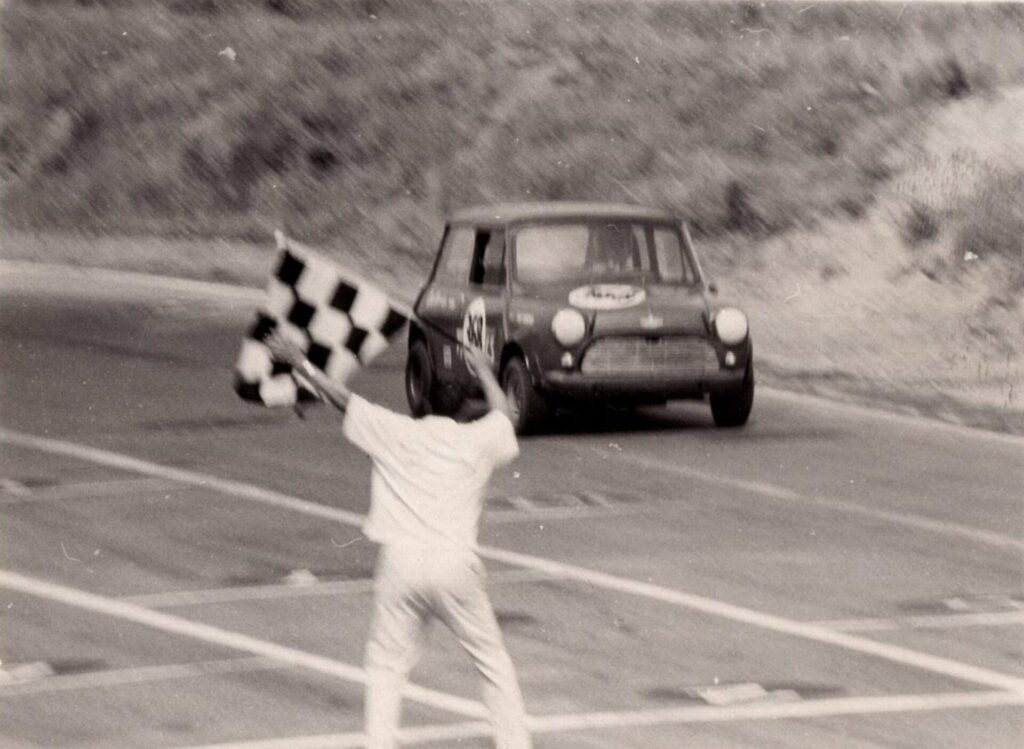
There’s more to this story….
In the following Pit Stop mini-sode (below), Alana Roberts chats with Nancy Crowther, widow of the late David Crowther, featured in Alana’s presentation “The Ultimate Weekend Warrior” (above). They chat about his extensive racing history and their life together in Canada. Dave, was a passionate motorsport enthusiast, raced various Mini Coopers in different disciplines of motorsport including: Road Racing, AutoCross and Ice Racing.
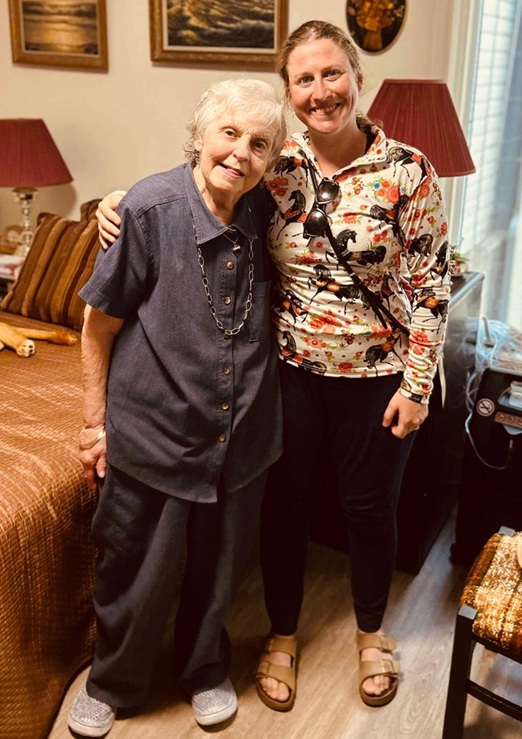
The interview weaves through anecdotes about Nancy and Dave’s journey, starting from their meeting, dating, and into their 59 years together. It highlights significant events like Dave’s victories, their shared experiences with different car clubs, rally races, and the challenges of transitioning from racing to family life.
Tune in everywhere you stream, download or listen!
 |  |  |
From simple beginnings of their racing with no trailers, camping at events, and the camaraderie within the racing community. Dave’s story also touches on cherished memorabilia that he kept, like news clippings and trophies, which was part of his meticulous nature. Alana’s goal is to preserve his legacy, underscoring his modesty, and passion for racing. And this episode serves a wonderful reminder of constant evolution of motorsport at every level and the preservation of these memories for future generations.
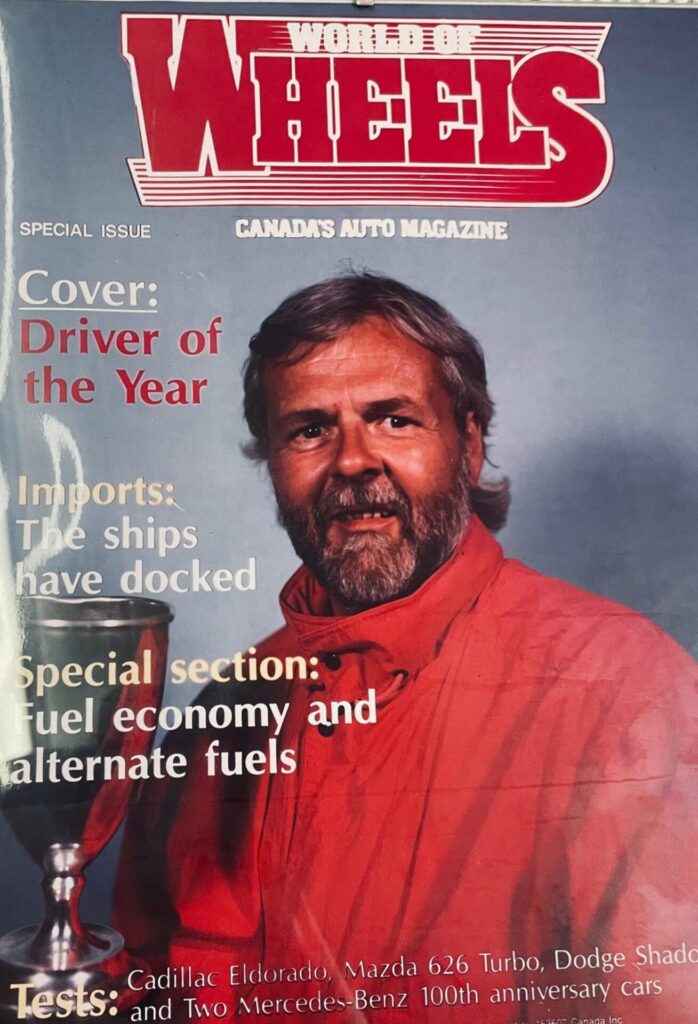
This episode is sponsored in part by: The International Motor Racing Research Center (IMRRC), The Society of Automotive Historians (SAH), The Watkins Glen Area Chamber of Commerce, and the Argetsinger Family – and was recorded in front of a live studio audience.
Other episodes you might enjoy
Michael R. Argetsinger Symposium on International Motor Racing History
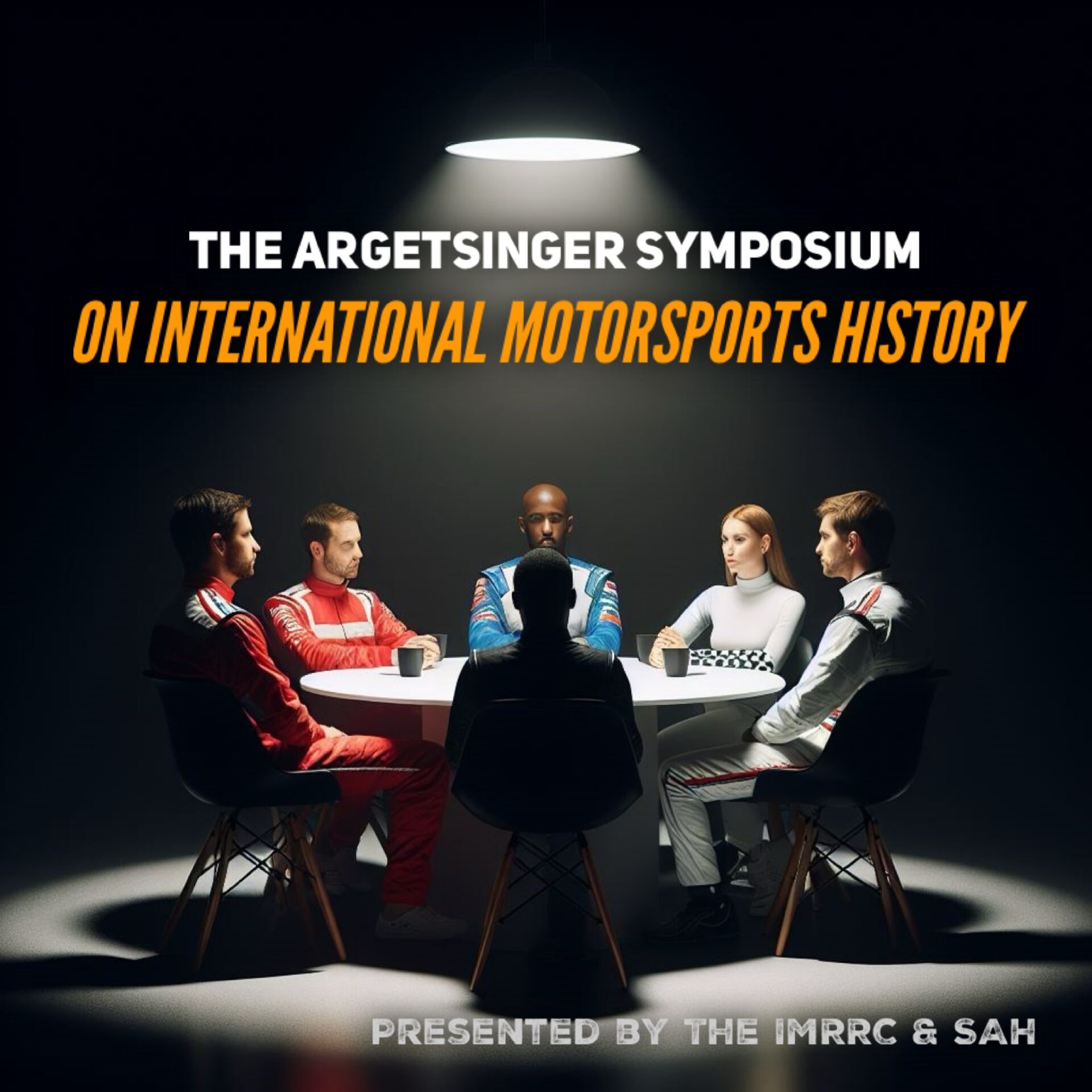 The International Motor Racing Research Center (IMRRC), partnering with the Society of Automotive Historians (SAH), presents the annual Michael R. Argetsinger Symposium on International Motor Racing History. The Symposium established itself as a unique and respected scholarly forum and has gained a growing audience of students and enthusiasts. It provides an opportunity for scholars, researchers and writers to present their work related to the history of automotive competition and the cultural impact of motor racing. Papers are presented by faculty members, graduate students and independent researchers.The history of international automotive competition falls within several realms, all of which are welcomed as topics for presentations, including, but not limited to: sports history, cultural studies, public history, political history, the history of technology, sports geography and gender studies, as well as archival studies.
The International Motor Racing Research Center (IMRRC), partnering with the Society of Automotive Historians (SAH), presents the annual Michael R. Argetsinger Symposium on International Motor Racing History. The Symposium established itself as a unique and respected scholarly forum and has gained a growing audience of students and enthusiasts. It provides an opportunity for scholars, researchers and writers to present their work related to the history of automotive competition and the cultural impact of motor racing. Papers are presented by faculty members, graduate students and independent researchers.The history of international automotive competition falls within several realms, all of which are welcomed as topics for presentations, including, but not limited to: sports history, cultural studies, public history, political history, the history of technology, sports geography and gender studies, as well as archival studies.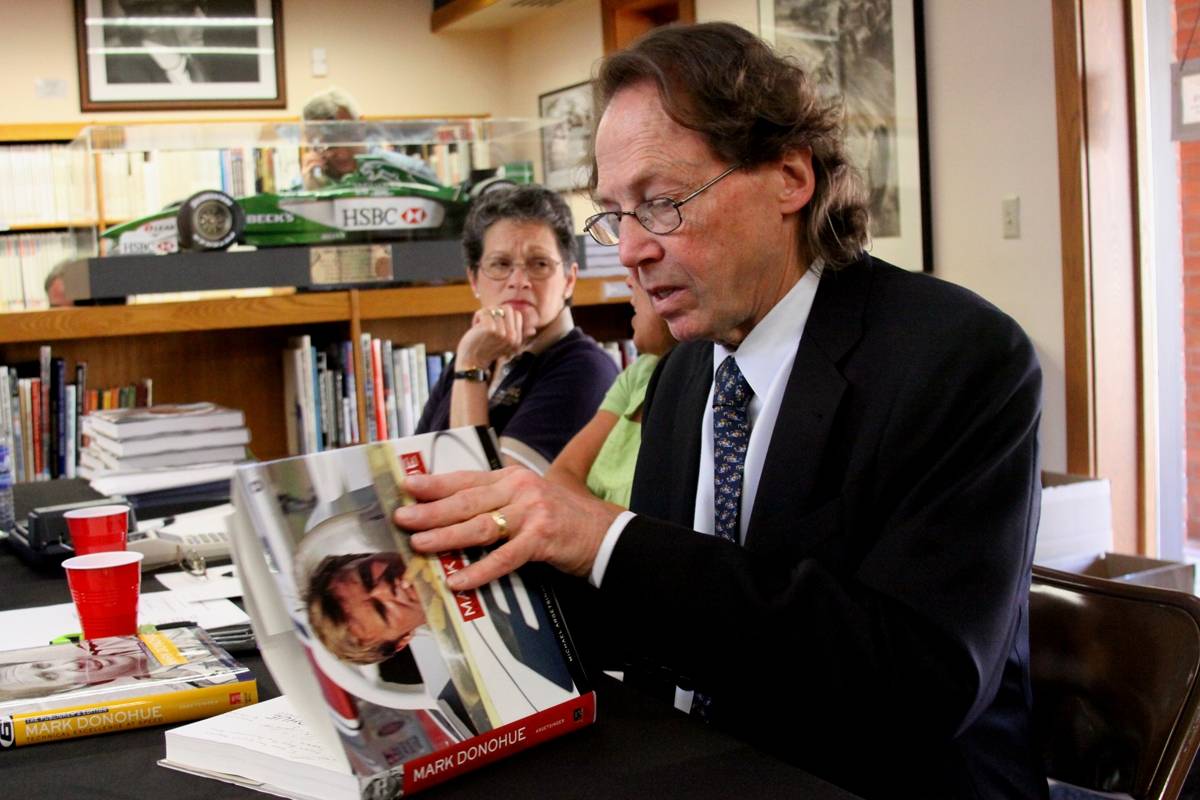 The symposium is named in honor of Michael R. Argetsinger (1944-2015), an award-winning motorsports author and longtime member of the Center's Governing Council. Michael's work on motorsports includes:
The symposium is named in honor of Michael R. Argetsinger (1944-2015), an award-winning motorsports author and longtime member of the Center's Governing Council. Michael's work on motorsports includes:- Walt Hansgen: His Life and the History of Post-war American Road Racing (2006)
- Mark Donohue: Technical Excellence at Speed (2009)
- Formula One at Watkins Glen: 20 Years of the United States Grand Prix, 1961-1980 (2011)
- An American Racer: Bobby Marshman and the Indianapolis 500 (2019)

























